Take advantage of the search to browse through the World Heritage Centre information.

Sustainable Tourism
UNESCO World Heritage and Sustainable Tourism Programme
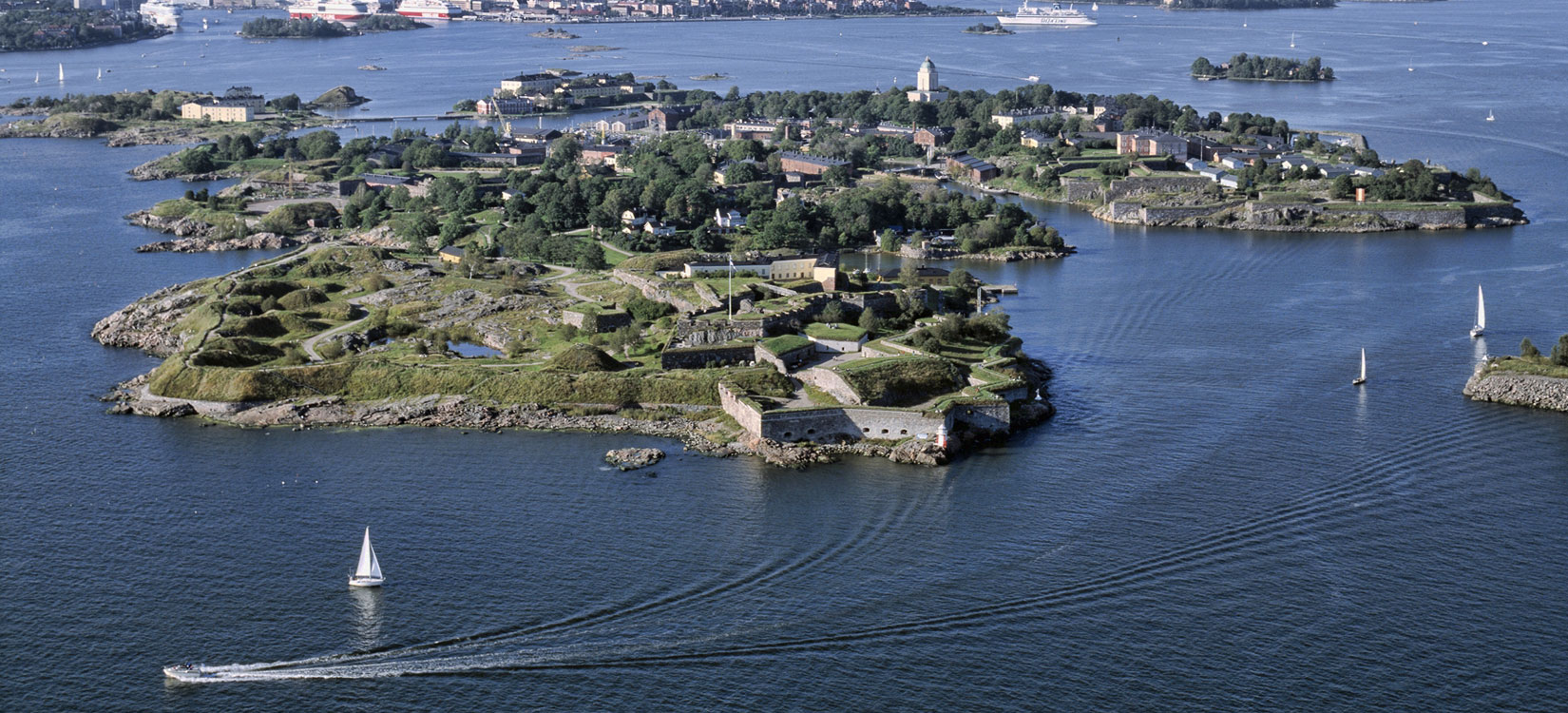
The UNESCO World Heritage and Sustainable Tourism Programme represents a new approach based on dialogue and stakeholder cooperation where planning for tourism and heritage management is integrated at a destination level, the natural and cultural assets are valued and protected, and appropriate tourism developed.
World Heritage and tourism stakeholders share responsibility for conservation of our common cultural and natural heritage of Outstanding Universal Value and for sustainable development through appropriate tourism management.
Facilitate the management and development of sustainable tourism at World Heritage properties through fostering increased awareness, capacity and balanced participation of all stakeholders in order to protect the properties and their Outstanding Universal Value.
Focus Areas
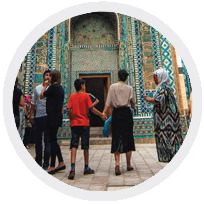
Policy & Strategy
Sustainable tourism policy and strategy development.

Tools & Guidance
Sustainable tourism tools

Capacity Building
Capacity building activities.
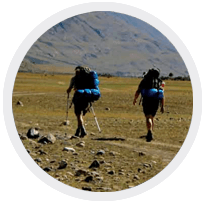
Heritage Journeys
Creation of thematic routes to foster heritage based sustainable tourism development
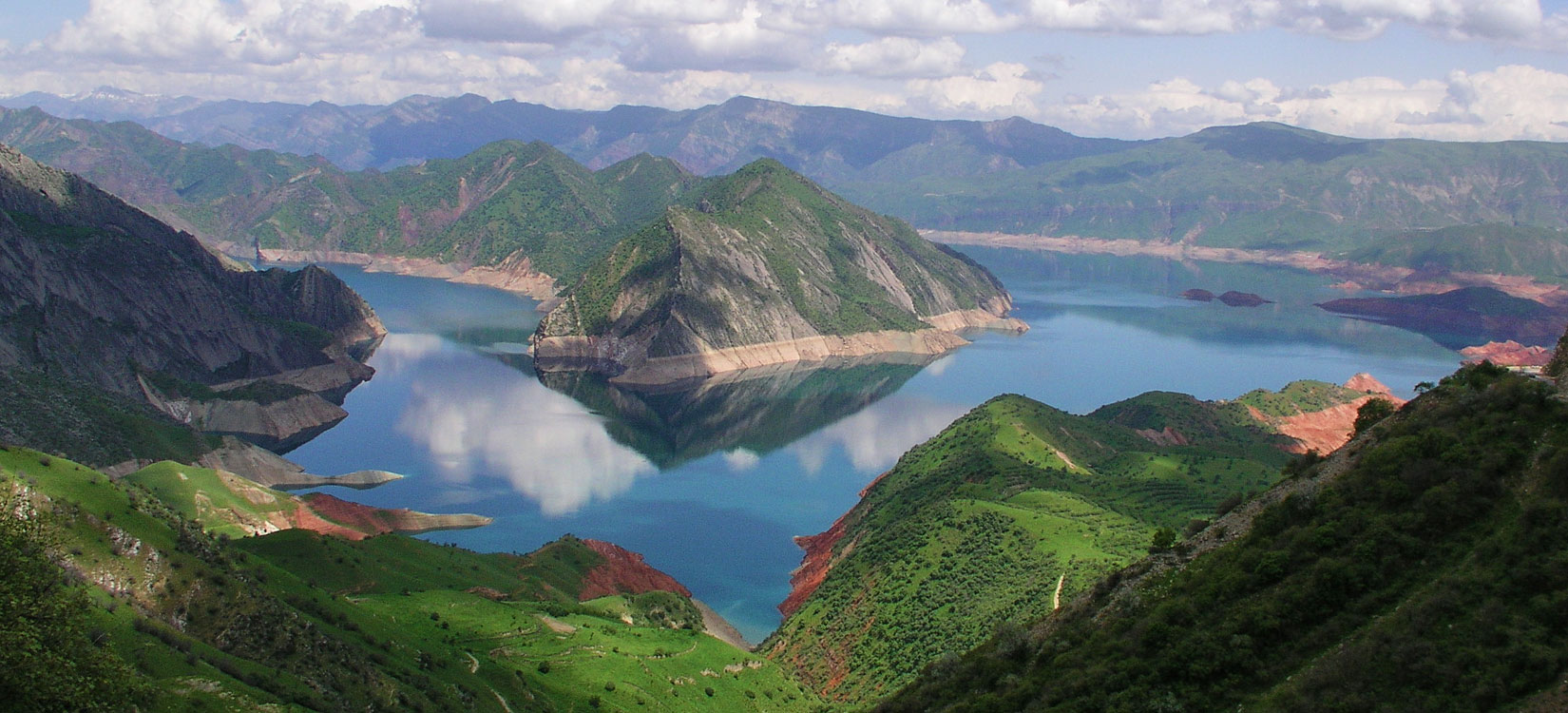
A key goal of the UNESCO WH+ST Programme is to strengthen the enabling environment by advocating policies and frameworks that support sustainable tourism as an important vehicle for managing cultural and natural heritage. Developing strategies through broad stakeholder engagement for the planning, development and management of sustainable tourism that follows a destination approach and focuses on empowering local communities is central to UNESCO’s approach.
Supporting Sustainable Tourism Recovery
Enhancing capacity and resilience in 10 World Heritage communities
Supported by BMZ, and implemented by UNESCO in collaboration with GIZ, this 2 million euro tourism recovery project worked to enhance capacity building in local communities, improve resilience and safeguard heritage.
Policy orientations
Defining the relationship between world heritage and sustainable tourism
Based on the report of the international workshop on Advancing Sustainable Tourism at Natural and Cultural Heritage Sites (Mogao, China, September 2009), the World Heritage Committee at its 34th session adopted the policy orientations which define the relationship between World Heritage and sustainable tourism ( Decision 34 COM 5F.2 ).
World Heritage and Tourism in a Changing Climate
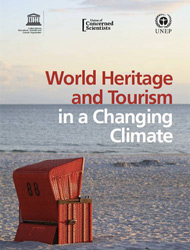
Providing an overview of the increasing vulnerability of World Heritage sites to climate change impacts and the potential implications for and of global tourism.
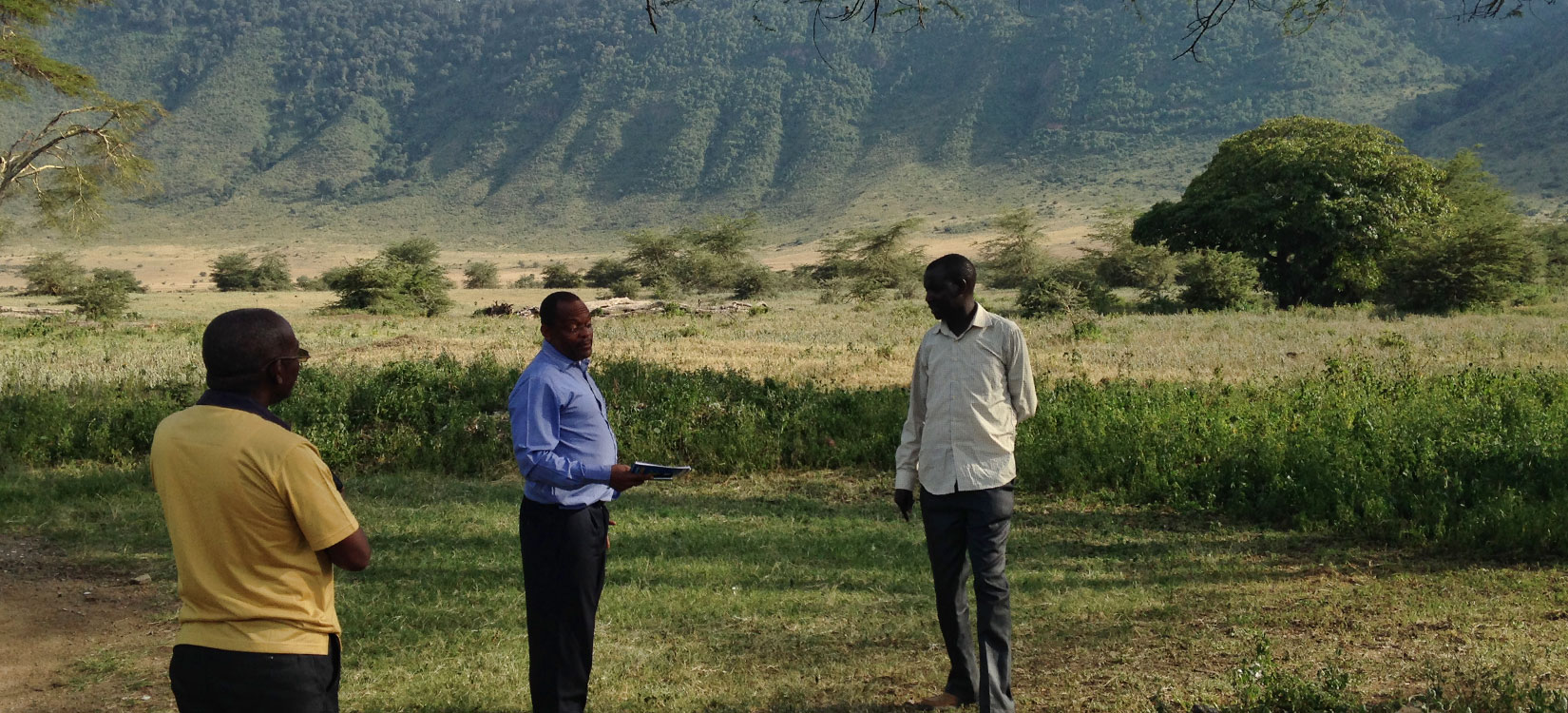
Sustainable Tourism Tools
Manage tourism efficiently, responsibly and sustainably based on the local context and needs
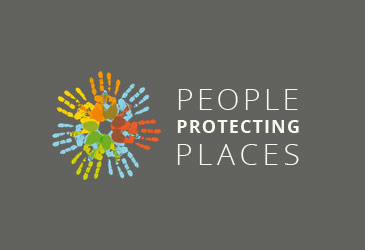
People Protecting Places is the public exchange platform for the World Heritage and Sustainable Tourism Programme, providing education and information, encouraging support, engaging in social and community dialogue

The ' How-To ' guides offer direction and guidance to managers of World Heritage tourism destinations and other stakeholders to help identify the most suitable solutions for circumstances in their local environments and aid in developing general know-how.
English French Russian
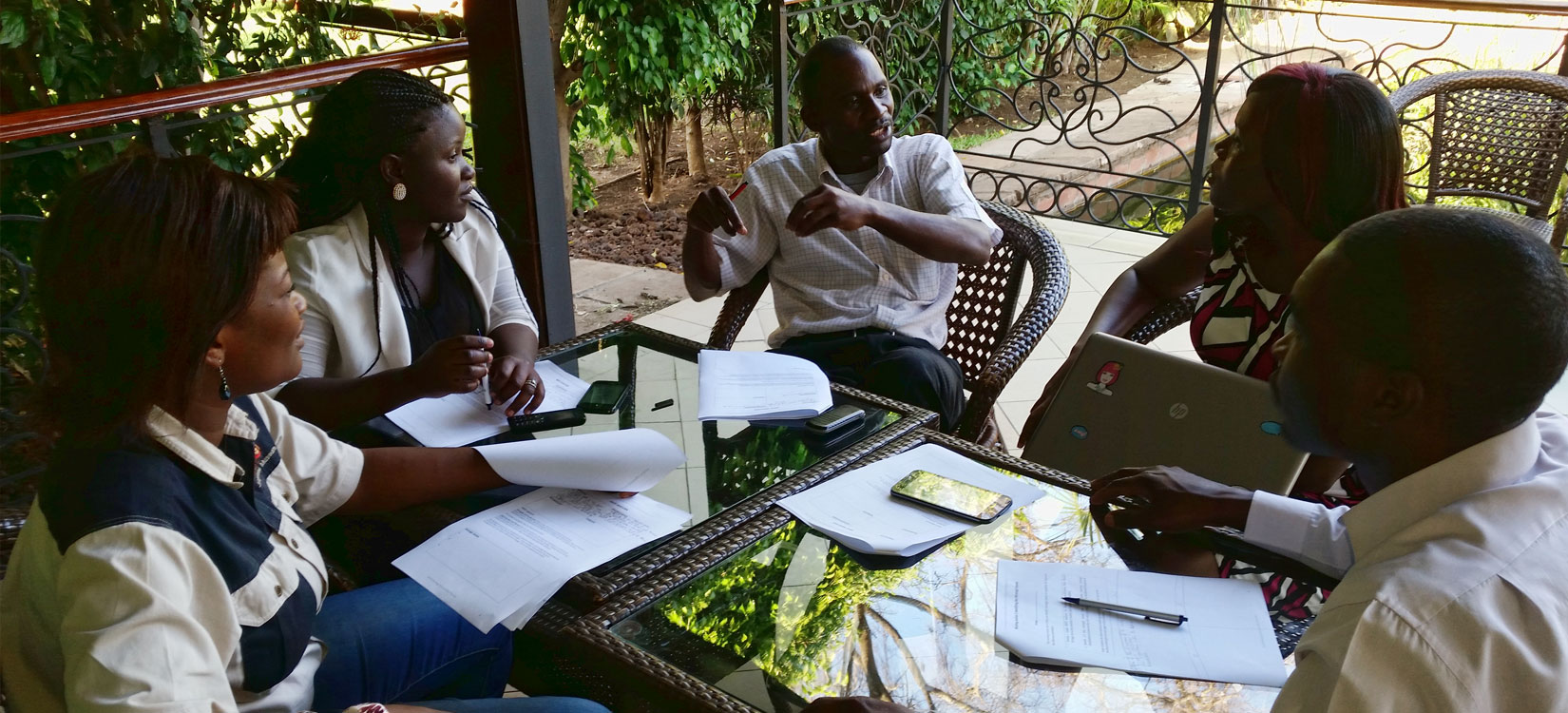
Helping site managers and other tourism stakeholders to manage tourism more sustainably
Capacity Building in 4 Africa Nature Sites
A series of practical training and workshops were organized in four priority natural World Heritage sites in Africa (Lesotho, Malawi, South Africa, Tanzania, Zambia and Zimbabwe) with the aim of providing capacity building tools and strategies for site managers to help them manage tourism at their sites more sustainably.
Learn more →
15 Pilot Sites in Nordic-Baltic Region
The project Towards a Nordic-Baltic pilot region for World Heritage and Sustainable Tourism (2012-2014) was initiated by the Nordic World Heritage Foundation (NWHF). With a practical approach, the project has contributed to tools for assessing and developing sustainable World Heritage tourism strategies with stakeholder involvement and cooperation.
Supporting Community-Based Management and Sustainable Tourism at World Heritage sites in South-East Asia
Entitled “The Power of Culture: Supporting Community-Based Management and Sustainable Tourism at World Heritage sites in South-East Asia", the UNESCO Office in Jakarta with the technical assistance of the UNESCO World Heritage and Sustainable Tourism Programme and the support from the Government of Malaysia is spearheading the first regional effort in Southeast Asia to introduce a new approach to sustainable tourism management at World Heritage sites in Malaysia, the Philippines and Indonesia.
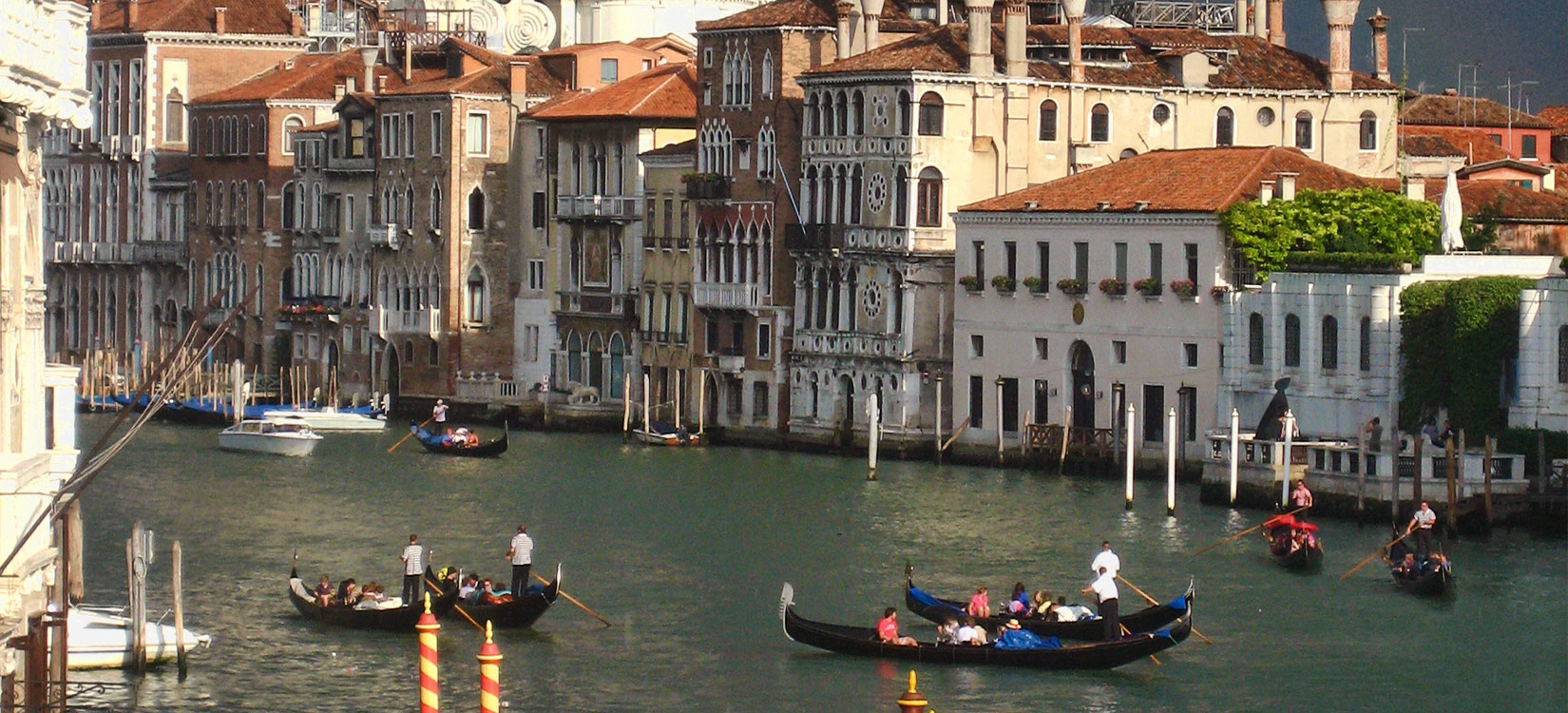
Cultural tourism is one of the largest and fastest-growing global tourism markets. Culture and creative industries are increasingly being used to promote destinations and enhance their competitiveness and attractiveness.
Many locations are now actively developing their cultural assets as a means of developing comparative advantages in an increasingly competitive tourism marketplace, and to create local distinctiveness in the face of globalization.
UNESCO will endeavour to create networks of key stakeholders to coordinate the destination management and marketing associated with the different heritage routes to promote and coordinate high-quality, unique experiences based on UNESCO recognized heritage. The goal is to promote sustainable development based on heritage values and create added tourist value for the sites.
UNESCO World Heritage Journeys of the EU
Creating heritage-based tourism that spurs investment in culture and the creative industries that are community-centered and offer sustainable and high-quality products that play on Europe's comparative advantages and diversity of its cultural assets.
World Heritage Journeys of Buddhist Heritage Sites
UNESCO is currently implementing a project to develop a unique Buddhist Heritage Route for Sustainable Tourism Development in South Asia with the support from the Korea International Cooperation Agency (KOICA). South Asia is host to rich Buddhist heritage that is exemplified in the World Heritage properties across the region.
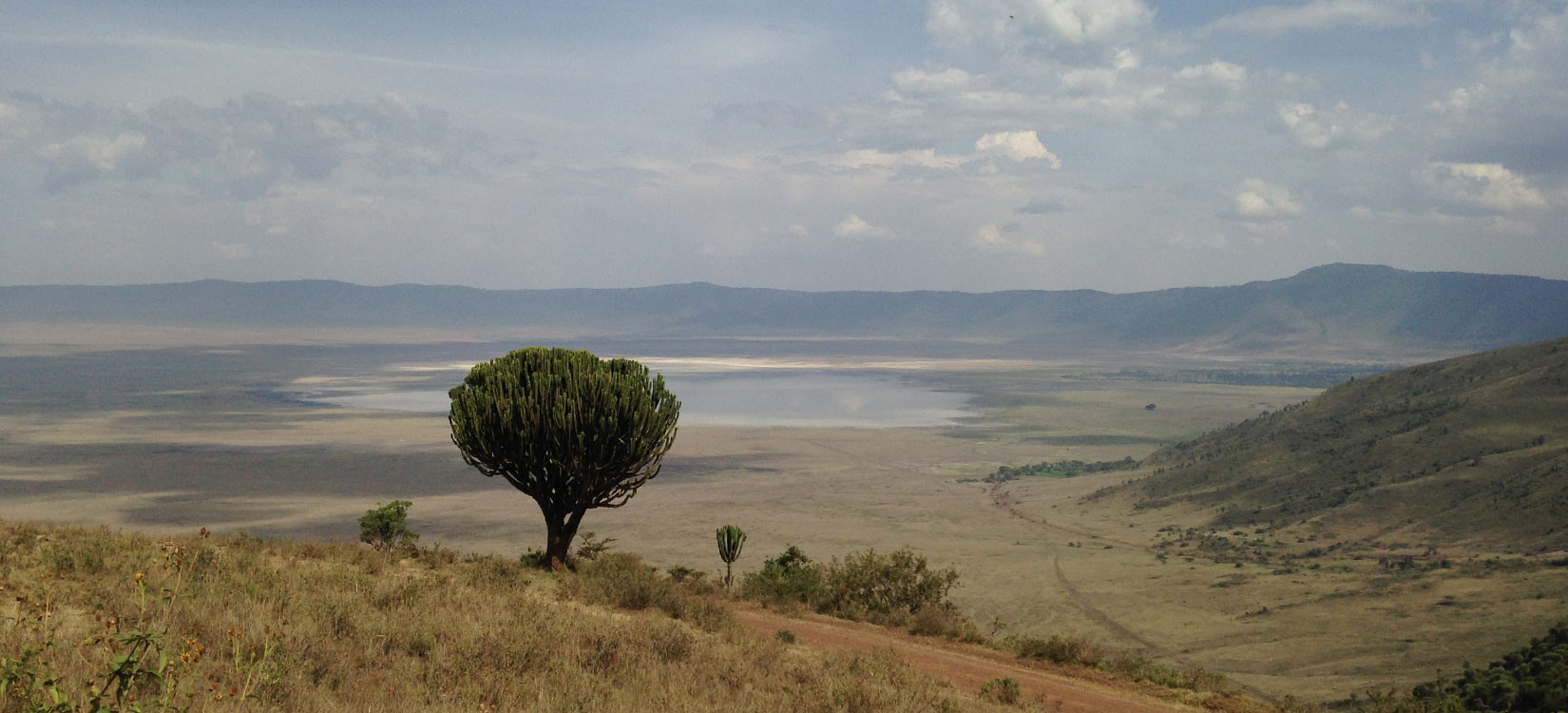
Programme Background
In 2011 UNESCO embarked on developing a new World Heritage and Sustainable Tourism Programme.
The aim was to create an international framework for the cooperative and coordinated achievement of shared and sustainable outcomes related to tourism at World Heritage properties.
The preparatory work undertaken in developing the Programme responded to the decision 34 COM 5F.2 of the World Heritage Committee at its 34th session in Brasilia in 2010, which requested
“the World Heritage Centre to convene a new and inclusive programme on World Heritage and Sustainable Tourism, with a steering group comprising interested States Parties and other relevant stakeholders, and also requests the World Heritage Centre to outline the objectives and approach to the implementation of this programme".
The Steering Group was comprised of States Parties representatives from the six UNESCO Electoral Groups (Germany (I), Slovenia (II), Argentina (III), China (IV), Tanzania (Va), and Lebanon (Vb)), the Director of the World Heritage Centre, the Advisory Bodies (IUCN, ICOMOS and ICCROM), the United Nations World Tourism Organization (UNWTO) and the Swiss Government as the donor agency.
The Government of Switzerland has provided financial support for specific actions to be undertaken by the Steering Group. To coordinate and support the process, the World Heritage Centre has formed a small Working Group with the support of the Nordic World Heritage Foundation, the Government of Switzerland and the mandated external consulting firm MartinJenkins.
The World Heritage Committee directed that the Programme take into account:
- the recommendations of the evaluation of the concluded tourism programme ( WHC-10/34.COM/INF.5F.3 )
- the policy orientation which defines the relationship between World Heritage and sustainable tourism that emerged from the workshop Advancing Sustainable Tourism at Natural and Cultural Heritage Sites (Mogao, China, September 2009) ( WHC-10/34.COM/INF.5F.1 )
Overarching and strategic processes that the new World Heritage and Sustainable Tourism Programme will be aligned with include the Strategic Objectives of the World Heritage Convention (the five C's) ( Budapest Declaration 2002 ), the ongoing Reflections on the Future of the World Heritage Convention ( WHC-11/35.COM/12A ) and the Strategic Action Plan for the Implementation of the World Heritage Convention 2012-2022 ( WHC-11/18.GA/11 ), the Relationship between the World Heritage Convention and Sustainable Development (WHC-10/34.COM/5D), the World Heritage Capacity Building Strategy ( WHC-10/34.COM/5D ), the Global Strategy for a Representative, Balanced and Credible World Heritage List (1994), and the Evaluation of the Global Strategy and PACT initiative ( WHC-11/18.GA/8 - 2011 ).
In addition, the programme development process has been enriched by an outreach to representatives from the main stakeholder groups including the tourism sector, national and local governments, site practitioners and local communities. The programme design was further developed at an Expert Meeting in Sils/Engadine, Switzerland October 2011. In this meeting over 40 experts from 23 countries, representing the relevant stakeholder groups, worked together to identify the overall strategic approach and a prioritised set of key objectives and activities. The proposed Programme was adopted by the World Heritage Committee in 2012 at its 36th session in St Petersburg, Russian Federation .
International Instruments
International Instruments Relating to Sustainable Development and Tourism.
Resolutions adopted by the United Nations, charters adopted by ICOMOS, decisions adopted by the World Heritage Committee, legal instruments adopted by UNESCO on heritage preservation.
Resolutions adopted by the United Nations
- Report by the Department of Economics and Social Affairs: Tourism and Sustainable Development: The Global Importance of Tourism at the United Nations’ Commission on Sustainable Development 7th Session (1999)
- Resolution A/RES/56/212 and the Global Code of Ethics for Tourism adopted by the United Nations World Tourism Organization (1999)
Charters adopted by ICOMOS
- The ICOMOS International Cultural Tourism Charter (1999)
- The ICOMOS Charter for the Interpretation and Presentation of Cultural Heritage Sites (2008)
Decisions adopted by the World Heritage Committee
- Decision (XVII.4-XVII.12) adopted by the World Heritage Committee at its 25th Session in Helsinki (2001)
- Decision 33 COM 5A adopted by the World Heritage Committee at its 30th Session in Seville (2009)
- Decision 34 COM 5F.2 adopted by the World Heritage Committee at its 34th Session in Brasilia (2010)
- Decision 36 COM 5E adopted by the World Heritage Committee at its 36th Session in Saint Petersburg (2012)
Legal instruments adopted by UNESCO on heritage preservation in chronological order
- Convention on the Means of Prohibiting and Preventing the Illicit Import, Export and Transfer of Ownership of Cultural Property (1970)
- The Recommendation for the Protection of Movable Cultural Property (1978)
- The Recommendation on the Safeguarding of Traditional Culture and Folklore (1989)
- The Convention on the Protection of the Underwater Cultural heritage (2001)
- The Convention on the Protection and Promotion of the Diversity of Cultural Expressions (2005)
Other instruments
- Other instruments OECD Tourism Trends and Policies 2012 (French forthcoming)
- Programme on Sustainable Consumption and Production (In English)
- Siem Reap Declaration on Tourism and Culture 2015 – Building a New Partnership Model
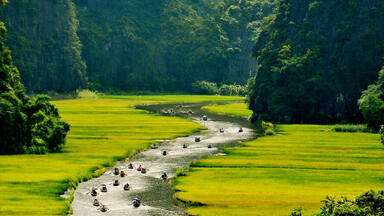
Decisions / Resolutions (5)
The World Heritage Committee,
- Having examined Document WHC/18/42.COM/5A,
- Recalling Decision 41 COM 5A adopted at its 41st session (Krakow, 2017) and Decision 40 COM 5D adopted at its 40th session (Istanbul/UNESCO, 2016), General:
- Takes note with appreciation of the activities undertaken by the World Heritage Centre over the past year in pursuit of the Expected Result to ensure that “tangible heritage is identified, protected, monitored and sustainably managed by Member States, in particular through the effective implementation of the 1972 Convention ”, and the five strategic objectives as presented in Document WHC/18/42.COM/5A;
- Welcomes the proactive role of the Secretariat for enhancing synergies between the World Heritage Convention and the other Culture and Biodiversity-related Conventions, particularly the integration of relevant synergies aspects in the revised Periodic Reporting Format and the launch of a synergy-related web page on the Centre’s website;
- Also welcomes the increased collaboration among the Biodiversity-related Conventions through the Biodiversity Liaison Group and focused activities, including workshops, joint statements and awareness-raising;
- Takes note of the Thematic studies on the recognition of associative values using World Heritage criterion (vi) and on interpretation of sites of memory, funded respectively by Germany and the Republic of Korea and encourages all States Parties to take on board their findings and recommendations, in the framework of the identification of sites, as well as management and interpretation of World Heritage properties;
- Noting the discussion paper by ICOMOS on Evaluations of World Heritage Nominations related to Sites Associated with Memories of Recent Conflicts, decides to convene an Expert Meeting on sites associated with memories of recent conflicts to allow for both philosophical and practical reflections on the nature of memorialization, the value of evolving memories, the inter-relationship between material and immaterial attributes in relation to memory, and the issue of stakeholder consultation; and to develop guidance on whether and how these sites might relate to the purpose and scope of the World Heritage Convention , provided that extra-budgetary funding is available and invites the States Parties to contribute financially to this end;
- Also invites the States Parties to support the activities carried out by the World Heritage Centre for the implementation of the Convention ;
- Requests the World Heritage Centre to present, at its 43rd session, a report on its activities. Thematic Programmes:
- Welcomes the progress report on the implementation of the World Heritage Thematic Programmes and Initiatives, notes their important contribution towards implementation of the Global Strategy for representative World Heritage List, and thanks all States Parties, donors and other organizations for having contributed to achieving their objectives;
- Acknowledges the results achieved by the World Heritage Cities Programme and calls States Parties and other stakeholders to provide human and financial resources ensuring the continuation of this Programme in view of its crucial importance for the conservation of the urban heritage inscribed on the World Heritage List, for the implementation of the Recommendation on the Historic Urban Landscape and its contribution to achieving the 2030 Sustainable Development Goals related to cities as well as for its contribution to the preparation of the New Urban Agenda, and further thanks to China and Croatia for their support for the implementation of the Programme;
- Also acknowledges the results achieved of the World Heritage Marine Programme, also thanks Flanders, France and the Annenberg Foundation for their support, notes the increased focus of the Programme on a global managers network, climate change adaptation strategies and sustainable fisheries, and invites States Parties, the World Heritage Centre and other stakeholders to continue to provide human and financial resources to support for the implementation of the Programme;
- Further acknowledges the results achieved in the implementation of the World Heritage Sustainable Tourism Programme, in particular the development of the Sustainable Tourism and Visitor Management Assessment tool and encourages States Parties to participate in the pilot testing of the tool, expresses appreciation for the funding provided by the European Commission and further thanks the Republic of Korea, Norway, and Seabourn Cruise Line for their support in the implementation of the Programme’’s activities;
- Further notes the progress in the implementation of the Small Island Developing States Programme, its importance for a representative, credible and balanced World Heritage List and building capacity of site managers and stakeholders to implement the World Heritage Convention , thanks furthermore Japan and the Netherlands for their support as well as the International Centre on Space Technology for Natural and Cultural Heritage (HIST) and the World Heritage Institute of Training & Research for the Asia & the Pacific Region (WHITRAP) as Category 2 Centres for their technical and financial supports and also requests the States Parties and other stakeholders to continue to provide human, financial and technical resources for the implementation of the Programme;
- Takes note of the activities implemented jointly by the International Astronomical Union (IAU) and ICOMOS under the institutional guidance of the World Heritage Centre, in line with its Decision 40 COM 5D, further requests the World Heritage Centre to disseminate among the States Parties the second volume of the IAU/ICOMOS Thematic Study on Astronomical Heritage and renames this initiative as Initiative on Heritage of Astronomy, Science and Technology;
- Also takes note of the progress report on the Initiative on Heritage of Religious Interest, endorses the recommendations of the Thematic Expert Consultation meetings focused on Mediterranean and South-Eastern Europe (UNESCO, 2016), Asia-Pacific (Thailand, 2017) and Eastern Europe (Armenia, 2018), thanks the States Parties for their generous contribution and reiterates its invitation to States Parties and other stakeholders to continue to support this Initiative, as well as its associated Marketplace projects developed by the World Heritage Centre;
- Takes note of the activities implemented by CRATerre in the framework of the World Heritage Earthen Architecture Programme, under the overall institutional guidance of the World Heritage Centre, and of the lines of action proposed for the future, if funding is available;
- Invites States Parties, international organizations and donors to contribute financially to the Thematic Programmes and Initiatives as the implementation of thematic priorities is no longer feasible without extra-budgetary funding;
- Requests furthermore the World Heritage Centre to submit an updated result-based report on Thematic Programmes and Initiatives, under Item 5A: Report of the World Heritage Centre on its activities, for examination by the World Heritage Committee at its 44th session in 2020.
1. Having examined document WHC-12/36.COM/5E,
2. Recalling Decision 34 COM 5F.2 adopted at its 34th session (Brasilia, 2010),
3. Welcomes the finalization of the new and inclusive Programme on World Heritage and Sustainable Tourism and notes with appreciation the participatory process for its development, objectives and approach towards implementation;
4. Also welcomes the contribution of the Steering Group comprised of States Parties representatives from the UNESCO Electoral Groups, the World Heritage Centre, the Advisory Bodies (IUCN, ICOMOS, ICCROM), Switzerland and the United Nations World Tourism Organisation (UNWTO) in the elaboration of the Programme;
5. Thanks the Government of Switzerland, the United Nations Foundation and the Nordic World Heritage Foundation for their technical and financial support to the elaboration of the Programme;
6. Notes with appreciation the contribution provided by the States Parties and other consulted stakeholders during the consultation phase of the Programme;
7. Takes note of the results of the Expert Meeting in Sils/Engadin (Switzerland), from 18 to 22 October 2011 contributing to the Programme, and further thanks the Government of Switzerland for hosting the Expert Meeting;
8. Adopts the World Heritage and Sustainable Tourism Programme;
9. Requests the World Heritage Centre to refine the Draft Action Plan 2013-2015 in an Annex to the present document and to implement the Programme with a Steering Group comprised of representatives of the UNESCO Electoral Groups, donor agencies, the Advisory Bodies, UNWTO and in collaboration with interested stakeholders;
10. Notes that financial resources for the coordination and implementation of the Programme do not exist and also requests States Parties to support the implementation of the World Heritage and Sustainable Tourism Programme;
11. Further requests the World Heritage Centre to report biennially on the progress of the implementation of the Programme;
12. Notes with appreciation the launch of the Programme foreseen at the 40th Anniversary of the World Heritage Convention event in Kyoto, Japan, in November 2012
1. Having examined Document WHC-10/34.COM/INF.5F.1 and WHC-10/34.COM/INF.5F.3,
2. Highlighting that the global tourism sector is large and rapidly growing, is diverse and dynamic in its business models and structures, and the relationship between World Heritage and tourism is two way: tourism, if managed well, offers benefits to World Heritage properties and can contribute to cross-cultural exchange but, if not managed well, poses challenges to these properties and recognizing the increasing challenges and opportunities relating to tourism;
3. Expresses its appreciation to the States Parties of Australia, China, France, India, Sweden, Switzerland and the United Kingdom, and to the United Nations Foundation and the Nordic World Heritage Foundation for the financial and technical support to the World Heritage Tourism Programme since its establishment in 2001;
4. Welcomes the report of the international workshop on Advancing Sustainable Tourism at Natural and Cultural Heritage Sites (Mogao, China, September 2009) and adopts the policy orientation which defines the relationship between World Heritage and sustainable tourism ( Attachment A );
5. Takes note of the evaluation of the World Heritage Tourism Programme by the UN Foundation, and encourages the World Heritage Centre to take fully into account the eight programme elements recommended in the draft final report in any future work on tourism ( Attachment B );
6. Decides to conclude the World Heritage Tourism Programme and requests the World Heritage Centre to convene a new and inclusive programme on World Heritage and Sustainable Tourism, with a steering group comprising interested States Parties and other relevant stakeholders, and also requests the World Heritage Centre to outline the objectives and approach to implementation of this programme, drawing on the directions established in the reports identified in Paragraphs 4 and 5 above, for consideration at the 35th session of the World Heritage Committee (2011);
7. Also welcomes the offer of the Government of Switzerland to provide financial and technical support to specific activities supporting the steering group; further welcomes the offer of the Governments of Sweden, Norway and Denmark to organize a Nordic-Baltic regional workshop in Visby, Gotland, Sweden in October 2010 on World Heritage and sustainable tourism; and also encourages States Parties to support the new programme on World Heritage and Sustainable Tourism including through regional events and the publication of materials identifying good practices;
8. Based upon the experience gained under the World Heritage Convention of issues related to tourism, invites the Director General of UNESCO to consider the feasibility of a Recommendation on the relationship between heritage conservation and sustainable tourism.
Attachment A
Recommendations of the international workshop
on Advancing Sustainable Tourism at Natural and Cultural Heritage Sites
Policy orientations: defining the relationship between World Heritage and tourism
1. The tourism sector
The global tourism sector is large and rapidly growing, is diverse and dynamic in its business models and structures.
Tourists/visitors are diverse in terms of cultural background, interests, behaviour, economy, impact, awareness and expectations of World Heritage.
There is no one single way for the World Heritage Convention , or World Heritage properties, to engage with the tourism sector or with tourists/visitors.
2. The relationship between World Heritage and tourism
The relationship between World Heritage and tourism is two-way:
a. World Heritage offers tourists/visitors and the tourism sector destinations
b. Tourism offers World Heritage the ability to meet the requirement in the Convention to 'present' World Heritage properties, and also a means to realise community and economic benefits through sustainable use.
Tourism is critical for World Heritage:
a. For States Parties and their individual properties,
i. to meet the requirement in the Convention to 'present' World Heritage
ii. to realise community and economic benefits
b. For the World Heritage Convention as a whole, as the means by which World Heritage properties are experienced by visitors travelling nationally and internationally
c. As a major means by which the performance of World Heritage properties, and therefore the standing of the Convention , is judged,
i. many World Heritage properties do not identify themselves as such, or do not adequately present their Outstanding Universal Value
ii. it would be beneficial to develop indicators of the quality of presentation, and the representation of the World Heritage brand
d. As a credibility issue in relation to: i. the potential for tourism infrastructure to damage Outstanding Universal Value
i. the threat that World Heritage properties may be unsustainably managed in relation to their adjoining communities
ii. sustaining the conservation objectives of the Convention whilst engaging with economic development
iii. realistic aspirations that World Heritage can attract tourism.
World Heritage is a major resource for the tourism sector:
a. Almost all individual World Heritage properties are significant tourism destinations
b. The World Heritage brand can attract tourists/visitors,
i. the World Heritage brand has more impact upon tourism to lesser known properties than to iconic properties.
Tourism, if managed well, offers benefits to World Heritage properties:
a. to meet the requirement in Article 4 of the Convention to present World Heritage to current and future generations
b. to realise economic benefits.
Tourism, if not managed well, poses threats to World Heritage properties.
3. The responses of World Heritage to tourism
The impact of tourism, and the management response, is different for each World Heritage property: World Heritage properties have many options to manage the impacts of tourism.
The management responses of World Heritage properties need to:
a. work closely with the tourism sector
b. be informed by the experiences of tourists/visitors to the visitation of the property
c. include local communities in the planning and management of all aspects of properties, including tourism.
While there are many excellent examples of World Heritage properties successfully managing their relationship to tourism, it is also clear that many properties could improve:
a. the prevention and management of tourism threats and impacts
b. their relationship to the tourism sector inside and outside the property
c. their interaction with local communities inside and outside the property
d. their presentation of Outstanding Universal Value and focus upon the experience of tourists/visitors.
a. be based on the protection and conservation of the Outstanding Universal Value of the property, and its effective and authentic presentation
b. work closely with the tourism sector
c. be informed by the experiences of tourists/visitors to the visitation of the property
d. to include local communities in the planning and management of all aspects of properties, including tourism.
4. Responsibilities of different actors in relation to World Heritage and tourism
The World Heritage Convention (World Heritage Committee, World Heritage Centre, Advisory Bodies):
a. set frameworks and policy approaches
b. confirm that properties have adequate mechanisms to address tourism before they are inscribed on the World Heritage List
i. develop guidance on the expectations to be include in management plans
c. monitor the impact upon OUV of tourism activities at inscribed sites, including through indicators for state of conservation reporting
d. cooperate with other international organisations to enable:
i. other international organisations to integrate World Heritage considerations in their programs
ii. all parties involved in World Heritage to learn from the activities of other international organisations
e. assist State Parties and sites to access support and advice on good practices
f. reward best practice examples of World Heritage properties and businesses within the tourist/visitor sector
g. develop guidance on the use of the World Heritage emblem as part of site branding.
Individual States Parties:
a. develop national policies for protection
b. develop national policies for promotion
c. engage with their sites to provide and enable support, and to ensure that the promotion and the tourism objectives respect Outstanding Universal Value and are appropriate and sustainable
d. ensure that individual World Heritage properties within their territory do not have their OUV negatively affected by tourism.
Individual property managers:
a. manage the impact of tourism upon the OUV of properties
i. common tools at properties include fees, charges, schedules of opening and restrictions on access
b. lead onsite presentation and provide meaningful visitor experiences
c. work with the tourist/visitor sector, and be aware of the needs and experiences of tourists/visitors, to best protect the property
i. the best point of engagement between the World Heritage Convention and the tourism sector as a whole is at the direct site level, or within countries
d. engage with communities and business on conservation and development.
Tourism sector:
a. work with World Heritage property managers to help protect Outstanding Universal Value
b. recognize and engage in shared responsibility to sustain World Heritage properties as tourism resources
c. work on authentic presentation and quality experiences.
Individual tourists/visitors with the assistance of World Heritage property managers and the tourism sector, can be helped to appreciate and protect the OUV of World Heritage properties.
Attachment B
Programme elements recommended by the Draft Final Report of the Evaluation of the World Heritage Tourism Programme by the UN Foundation:
1. Adopt and disseminate standards and principles relating to sustainable tourism at World Heritage sites;
2. Support the incorporation of appropriate tourism management into the workings of the Convention ;
3. Collation of evidence to support sustainable tourism programme design, and to support targeting;
4. Contribution of a World Heritage perspective to cross agency sustainable tourism policy initiatives;
5. Strategic support for the dissemination of lessons learned;
6. Strategic support for the development of training and guidance materials for national policy agencies and site managers;
7. Provision of advice on the cost benefit impact of World Heritage inscription;
8. Provision of advice on UNESCO World Heritage branding.
1. Having examined Documents WHC-09/33.COM/5A, WHC- 09/33.COM/INF.5A.1, WHC-09/33.COM/INF.5A.2, and WHC-09/33.COM/INF.5A.3 ,
2. Recalling Decision 32 COM 5 adopted at its 32nd session (Quebec City, 2008),
3. Takes note with appreciation of the activities undertaken by the World Heritage Centre over the past year in pursuit of the Committee's five Strategic Objectives;
4. Takes also note of the findings of the study undertaken by UNESCO's Internal Oversight Service on the mapping of the workload of the World Heritage Centre presented in Document WHC-09/33.COM/INF.5A.3;
5. Notes with satisfaction that the World Heritage Centre is working with the secretariats of intergovernmental committees of related conventions such as the Convention for the Safeguarding of Intangible Cultural Heritage , and the Convention for the Protection of the Underwater Cultural Heritage-2001 and recommends that such cooperation be encouraged as this would further strengthen the work of the Centre;
6. Requests the World Heritage Centre to prepare a document on the World Heritage Convention and its cooperation and exchange with other conventions and programmes in the field of cultural heritage for discussion at the 34th session of the World Heritage Committee (2010);
7. Also requests the World Heritage Centre, in future reports on activities undertaken, to further strengthen the information and analysis available to States Parties by:
a) Retaining the current format to report activities and including an update on progress with implementing the Committee's decisions,
b) Describing the criteria by which the World Heritage Centre makes decisions as to which activities under the Convention it undertakes,
c) And including, on a discretionary basis, analysis of strategic issues and new directions;
8. Further requests the World Heritage Centre to produce, on an experimental basis, an indexed audio verbatim recording of the proceedings of the 33rd Session in addition to the standard summary records (as produced since the 26th session of the World Heritage Committee);
9. Notes the outline provided by the World Heritage Centre of its roles and the roles of the Advisory Bodies and agrees that this topic be further discussed at the 34th session of the Committee in 2010 under a separate agenda item;
10. Requests furthermore the World Heritage Centre to outline the forward direction of the World Heritage thematic programmes and initiatives, to enable an understanding of how these themes connect with and integrate into general programmes, and how they might be resourced;
11. Notes that the Centre already proactively engages women in its Heritage Programmes in Asia, Africa and the Caribbean as part of its gender balance policy and the provision of equal opportunity to all, and recommends that gender balance and community involvement be prioritized in the Centre's programmes;
12. Adopts the World Heritage Thematic Programme on Prehistory presented in Annex 1 of document WHC-09/33.COM/5A ;
13. Requests the World Heritage Centre to reconsider the term "prehistory", to better recognize the continuing cultures of indigenous communities, to ensure global representation in the identification and conservation of related properties, and to present a report on progress in developing an Action Plan on Prehistory and World Heritage at its 34th session in 2010;
14. Notes with concern the ongoing destruction of some of these fragile sites, including the recent destruction of the Rock Art sites of Tardrat Acacus in Libya, and requests the State Party to take immediate action and other measures as necessary to address the problem in consultation with the World Heritage Centre and to invite a joint World Heritage Centre / ICOMOS mission;
15. Expresses its gratitude to the Governments of Bahrain, South Africa and Spain for the financial and technical support for the various international scientific encounters, and recognizes the proposal of the Government of Spain in establishing a centre for the research of Prehistory;
16. Recalling the Decision of the World Heritage Committee 31 COM.21C to carry out a programme of sustainable development concerning the conservation of earthen architecture, thanks the Governments of Italy and France for their support of the programme on earthen architecture in Africa and the Arab States in particular, and requests the potential financial donors and the States Parties to support the implementation of activities and further requests the World Heritage Centre to submit a progress report at its 35th session in 2011;
17. Takes note of the progress report on the World Heritage Tourism Programme;
18. Thanks the Governments of Australia, China, France, India, Switzerland and United Kingdom, who have worked in close collaboration with the World Heritage Centre and the Advisory Bodies, the World Tourism Organization and other partners, for contributing to the Initiative of Sustainable Tourism;
19. Expresses its gratitude to the Governments of Australia and China for the organization of a workshop on sustainable tourism at the World Heritage site, Mogao Caves, China, in September-October 2009 and requests that the following elements be submitted to the Committee for examination at its 34th session in 2010:
a) A report on the workshop,
b) The subsequent recommendations of the workshop regarding the adoption of best practices policy guidance, and concerning the changes proposed for the Operational Guidelines for the implementation of the World Heritage Convention ,
c) A document concerning the progress of the World Heritage Programme on Tourism;
20. Finally requests the Director of the World Heritage Centre to identify supplementary sources of funding to put into place a sufficient number of staff and resources at the World Heritage Centre and the Advisory Bodies in order to continue to efficiently contribute to the resolution of problems related to World Heritage conservation.
XVII.8 The Secretariat provided the following justifications for the selection:
- Tourism - growing threats on World Heritage sites from tourism which, if sustainably managed could offer socio-economic development opportunities;
- Forests - since close to 60 of the natural sites on the World Heritage List are forests and that the lessons being learned from the large-scale UNESCO-UN Foundation projects in the tropical forest sites in the Democratic Republic of the Congo can serve as case studies to enrich the programme;
- Cities - since close to 200 of the cultural sites on the List are historic centres or entire cities, and because 20% of the Fund's international assistance have served to address the challenge of urban heritage conservation;
- Earthen structures - since some 30 of the cultural sites on the List are included in this category, and due to the particularity of conservation of earthen heritage, and threats.
XVII.10 The Committee expressed its appreciation for the clarity of the presentation and the justifications provided. Indicating strong support for the overall programming approach, the Committee however indicated the need for the programme to respond to the priorities established by the Committee and to create strong links with the results of the Global Strategy actions and Periodic Reporting. The Committee approved the four proposed themes of the programmes in this first series of initiatives and authorized the Centre to proceed in their development.
- Programmes Consumer Information for SCP Sustainable Buildings and Construction Sustainable Food Systems Sustainable Lifestyles & Education Sustainable Public Procurement Sustainable Tourism
- Network Members Directory Organisations
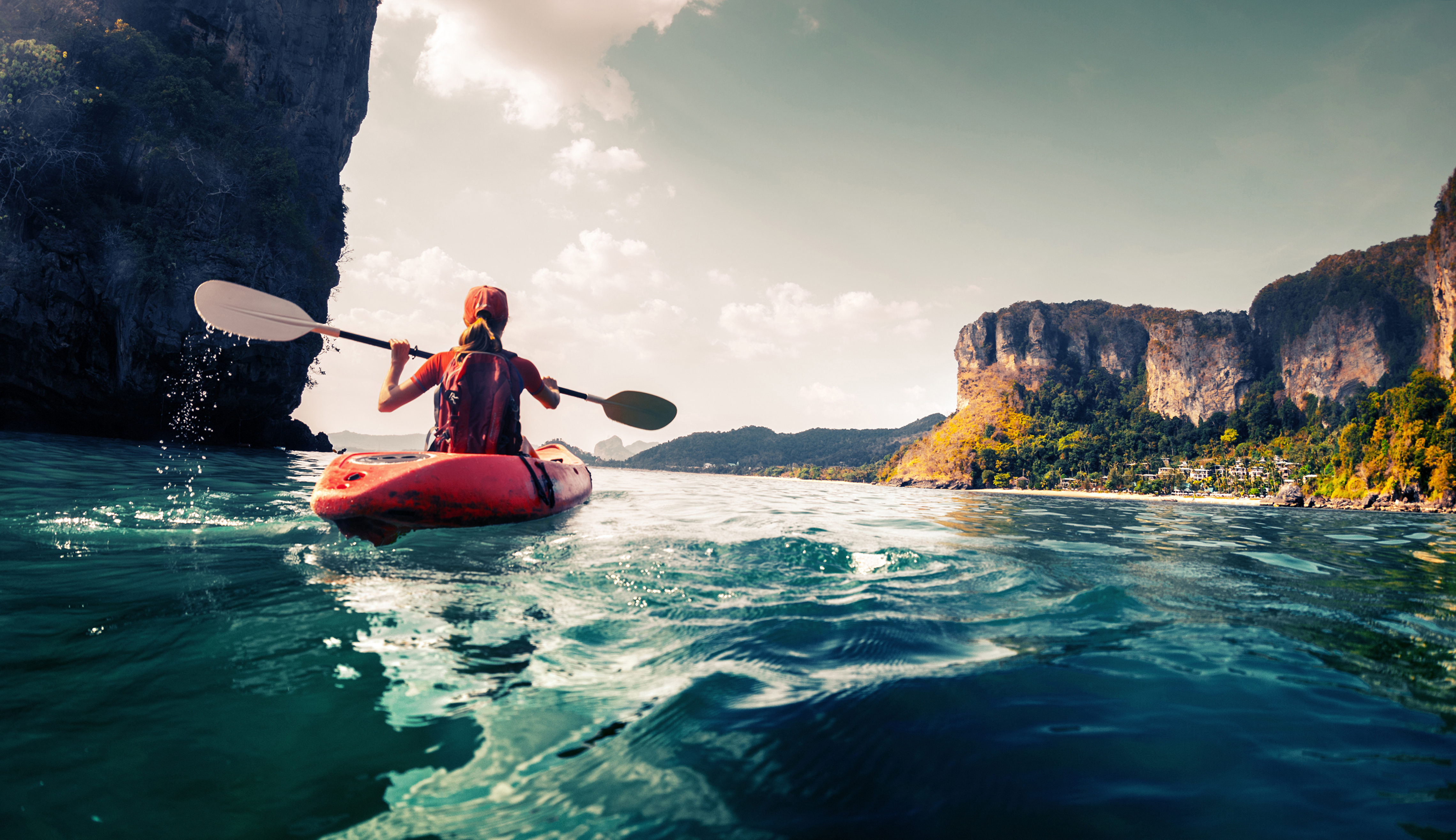
Sustainable Tourism programme
- About Members Annual reports Logo use Contact us
- Knowledge Centre
- News & events
Global Tourism Plastics Initiative
Sustainable food systems.
- Glasgow Declaration for Climate Action
The One Planet Sustainable Tourism Programme aims to accelerate sustainable consumption and production (SCP) in tourism policies and practices to address the challenges of pollution, biodiversity loss and climate change. It promotes knowledge sharing and networking opportunities to define collective priorities and identify solutions.
Through its work, the One Planet Sustainable Tourism Programme sets the SCP agenda in the tourism sector to advance the implementation of Sustainable Development Goal 12 and also delivers progress under connected goals, such as SDG13, SDG14 and SDG15, respectively on climate action and the protection of marine and terrestrial ecosystems.
Sustainable Tourism
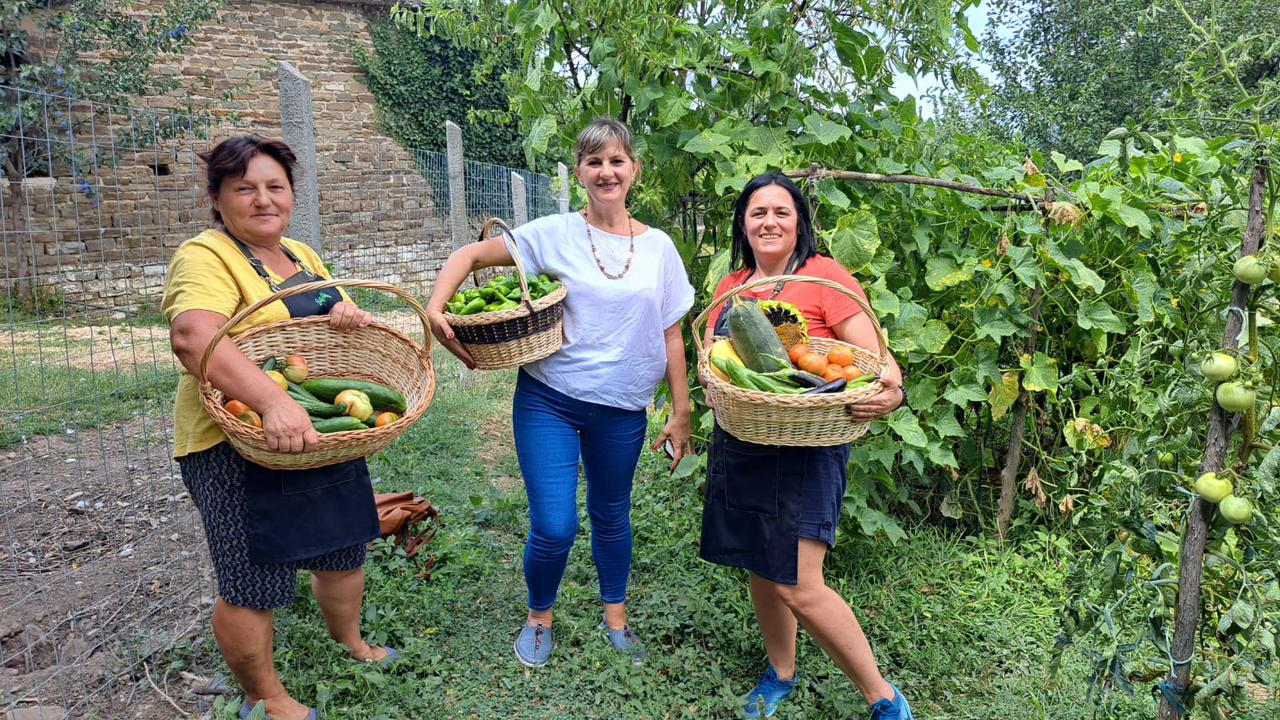
Story of change - Albania: investing in agritourism as an engine for shared prosperity
Sustainable buildings and construction, sustainable lifestyles & education, consumer information for scp, sustainable public procurement.
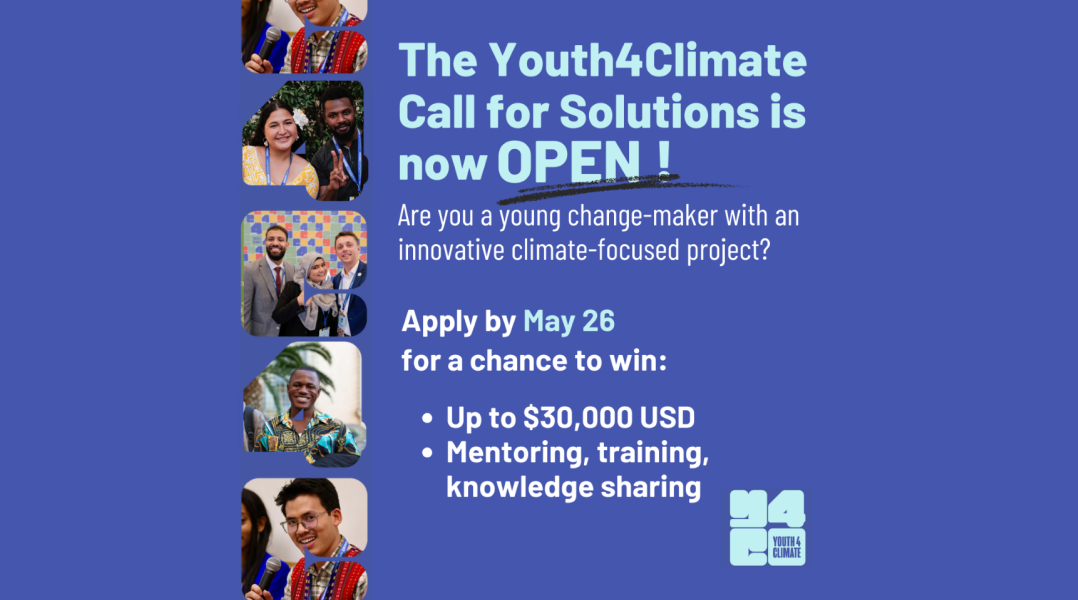
The Youth4Climate Call for Solutions is now OPEN!
See all news & events.
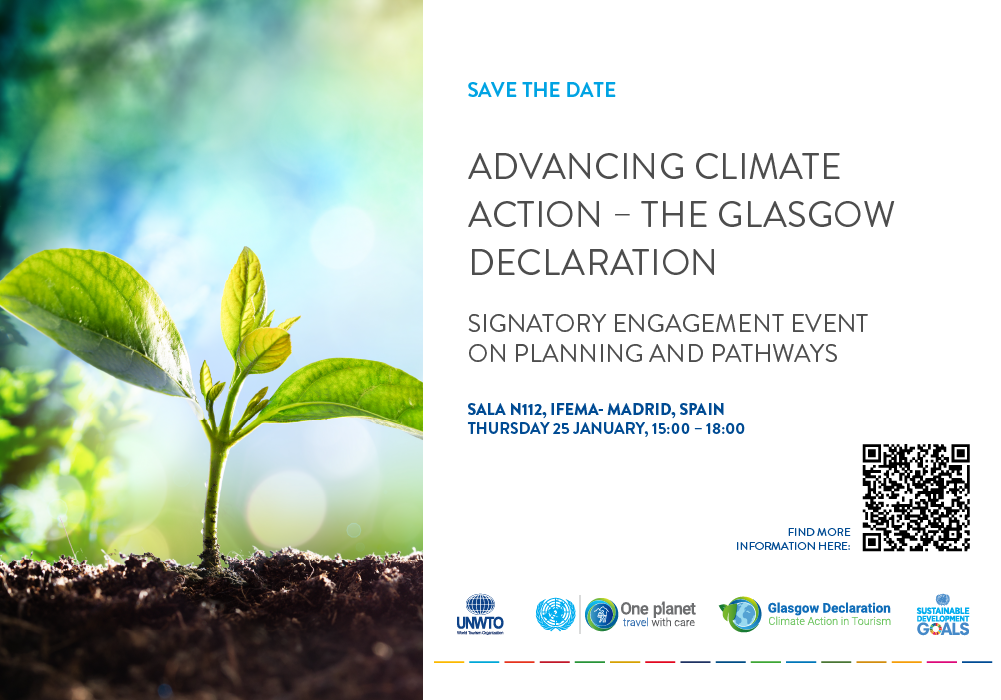
GLASGOW DECLARATION GLOBAL ROUNDTABLE - FITUR 2024

10YFP Board and SCP Partners Meeting
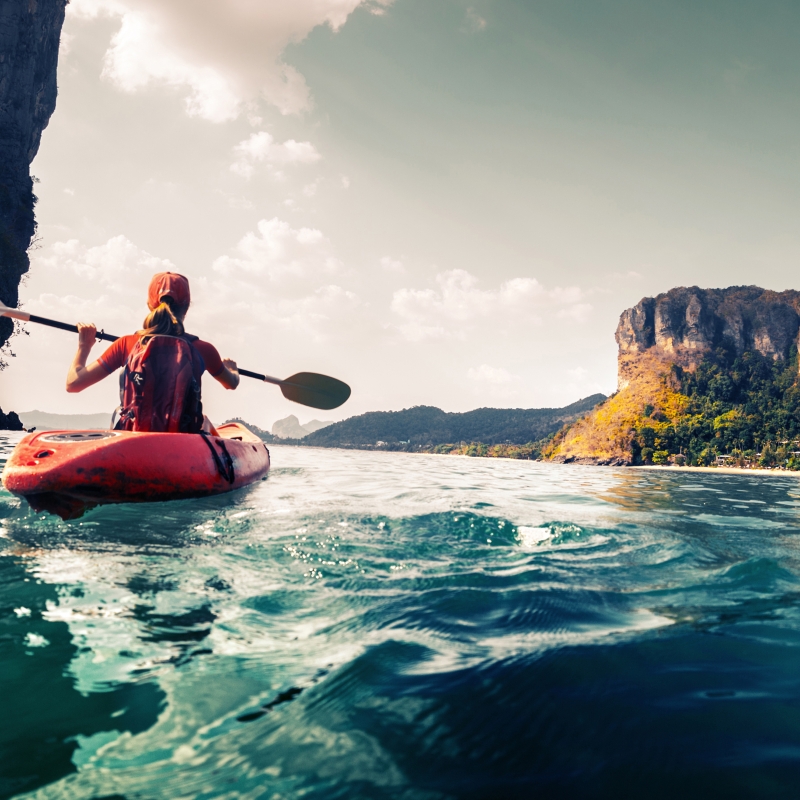
Are you interested in getting involved in the Sustainable Tourism Programme?
Work streams.

Circular Economy in Tourism

Glasgow Declaration on Climate Action
Knowledge centre.
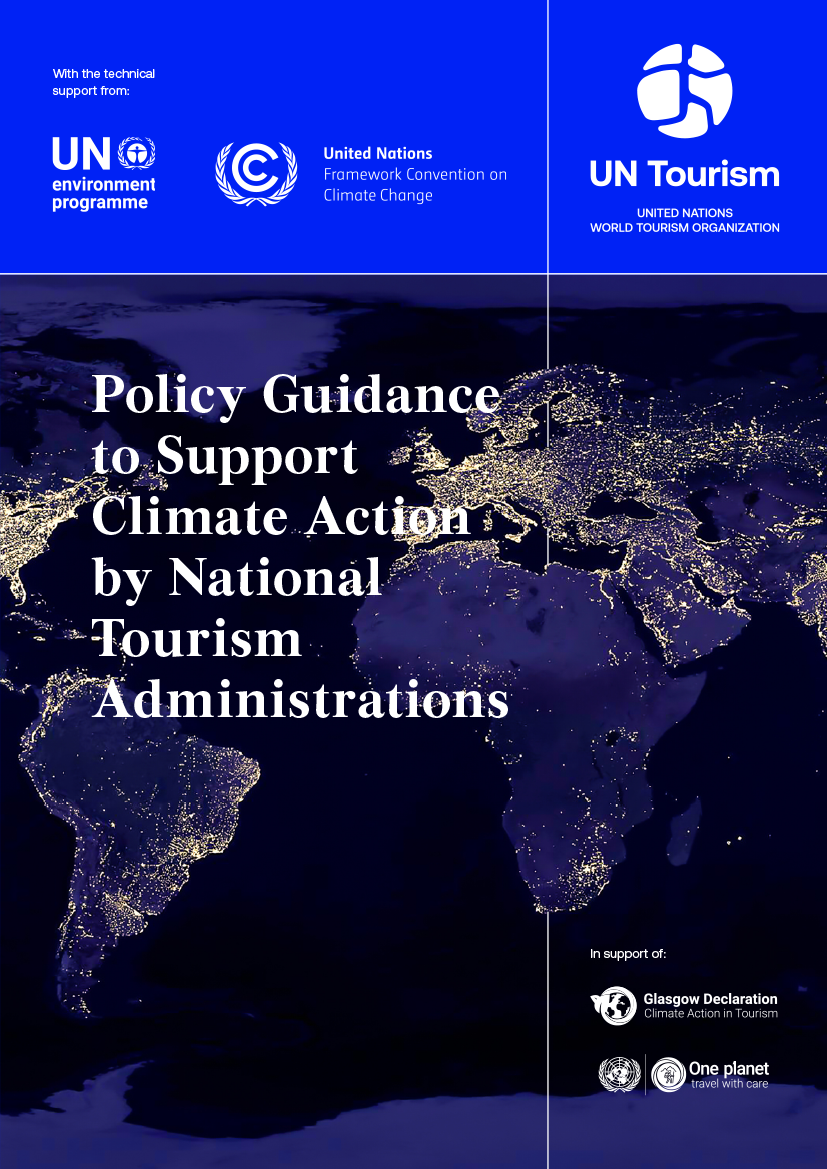
Policy Guidance to Support Climate Action by National Tourism Administrations
This policy guidance has been developed to assist governmental agencies dedicated to tourism to develop policies and initiatives that will support the low-carbon transition of the sector. This policy guidance provides examples of good practice from...

21st Century Slavery - The Various Forms of Human Enslavement in Today's World
Blue flag ecological programme - agricultural category.
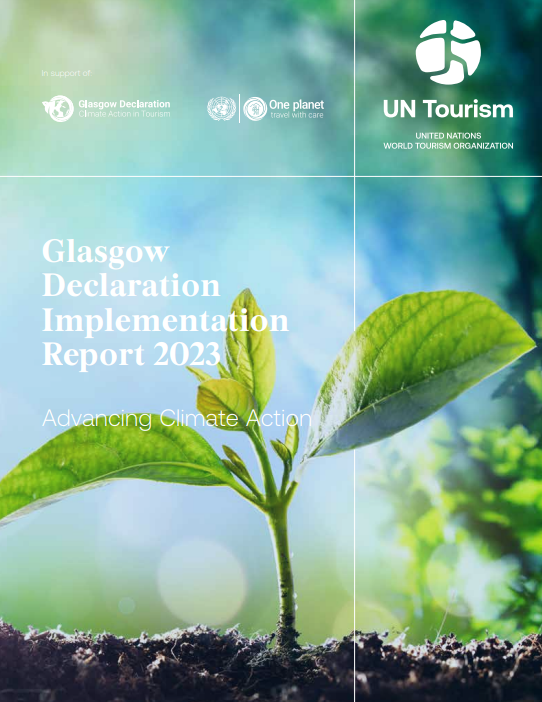
Glasgow Declaration Implementation Report 2023 – Advancing Climate Action
Members of the programme.
The One Planet Sustainable Tourism Programme is led by the World Tourism Organization (UNWTO) of the United Nations , with the governments of France and Spain as Co-leads and in collaboration with the United Nations Environment Programme (UNEP) .
Events & Webinars
Cop28 - tourism united for climate action – delivering on the commitments of the glasgow declaration, cities and urban hotels training in nakuru, in conversation with bucuti & tara beach resort: embracing climate action with carbon neutrality and beyond, in conversation with seychelles sustainable tourism foundation: building towards a climate resilient and sustainable tourism industry, in conversation with the vancouver island region: mobilizing the tourism value chain at the destination level to foster climate action, in conversation with necstour: accelerating climate action through regional collaboration, circular solutions for reducing food waste, stay up to date, select a language.
Sustainable tourism
Related sdgs, promote sustained, inclusive and sustainable ....

Description
Publications.
Tourism is one of the world's fastest growing industries and an important source of foreign exchange and employment, while being closely linked to the social, economic, and environmental well-being of many countries, especially developing countries. Maritime or ocean-related tourism, as well as coastal tourism, are for example vital sectors of the economy in small island developing States (SIDS) and coastal least developed countries (LDCs) (see also: The Potential of the Blue Economy report as well as the Community of Ocean Action on sustainable blue economy).
The World Tourism Organization defines sustainable tourism as “tourism that takes full account of its current and future economic, social and environmental impacts, addressing the needs of visitors, the industry, the environment and host communities".
Based on General assembly resolution 70/193, 2017 was declared as the International Year of Sustainable Tourism for Development.
In the 2030 Agenda for Sustainable Development SDG target 8.9, aims to “by 2030, devise and implement policies to promote sustainable tourism that creates jobs and promotes local culture and products”. The importance of sustainable tourism is also highlighted in SDG target 12.b. which aims to “develop and implement tools to monitor sustainable development impacts for sustainable tourism that creates jobs and promotes local culture and products”.
Tourism is also identified as one of the tools to “by 2030, increase the economic benefits to Small Island developing States and least developed countries” as comprised in SDG target 14.7.
In the Rio+20 outcome document The Future We want, sustainable tourism is defined by paragraph 130 as a significant contributor “to the three dimensions of sustainable development” thanks to its close linkages to other sectors and its ability to create decent jobs and generate trade opportunities. Therefore, Member States recognize “the need to support sustainable tourism activities and relevant capacity-building that promote environmental awareness, conserve and protect the environment, respect wildlife, flora, biodiversity, ecosystems and cultural diversity, and improve the welfare and livelihoods of local communities by supporting their local economies and the human and natural environment as a whole. ” In paragraph 130, Member States also “call for enhanced support for sustainable tourism activities and relevant capacity-building in developing countries in order to contribute to the achievement of sustainable development”.
In paragraph 131, Member States “encourage the promotion of investment in sustainable tourism, including eco-tourism and cultural tourism, which may include creating small- and medium-sized enterprises and facilitating access to finance, including through microcredit initiatives for the poor, indigenous peoples and local communities in areas with high eco-tourism potential”. In this regard, Member States also “underline the importance of establishing, where necessary, appropriate guidelines and regulations in accordance with national priorities and legislation for promoting and supporting sustainable tourism”.
In 2002, the World Summit on Sustainable Development in Johannesburg called for the promotion of sustainable tourism development, including non-consumptive and eco-tourism, in Chapter IV, paragraph 43 of the Johannesburg Plan of Implementation.
At the Johannesburg Summit, the launch of the “Sustainable Tourism – Eliminating Poverty (ST-EP) initiative was announced. The initiative was inaugurated by the World Tourism Organization, in collaboration with UNCTAD, in order to develop sustainable tourism as a force for poverty alleviation.
The UN Commission on Sustainable Development (CSD) last reviewed the issue of sustainable tourism in 2001, when it was acting as the Preparatory Committee for the Johannesburg Summit.
The importance of sustainable tourism was also mentioned in Agenda 21.
For more information and documents on this topic, please visit this link
UNWTO Annual Report 2015
2015 was a landmark year for the global community. In September, the 70th Session of the United Nations General Assembly adopted the Sustainable Development Goals (SDGs), a universal agenda for planet and people. Among the 17 SDGs and 169 associated targets, tourism is explicitly featured in Goa...
UNWTO Annual Report 2016
In December 2015, the United Nations General Assembly declared 2017 as the International Year of Sustainable Tourism for Development. This is a unique opportunity to devote a year to activities that promote the transformational power of tourism to help us reach a better future. This important cele...
Emerging Issues for Small Island Developing States
The 2012 UNEP Foresight Process on Emerging Global Environmental Issues primarily identified emerging environmental issues and possible solutions on a global scale and perspective. In 2013, UNEP carried out a similar exercise to identify priority emerging environmental issues that are of concern to ...
Transforming our World: The 2030 Agenda for Sustainable Development
This Agenda is a plan of action for people, planet and prosperity. It also seeks to strengthen universal peace in larger freedom, We recognize that eradicating poverty in all its forms and dimensions, including extreme poverty, is the greatest global challenge and an indispensable requirement for su...
Towards Measuring the Economic Value of Wildlife Watching Tourism in Africa
Set against the backdrop of the ongoing poaching crisis driven by a dramatic increase in the illicit trade in wildlife products, this briefing paper intends to support the ongoing efforts of African governments and the broader international community in the fight against poaching. Specifically, this...
Status and Trends of Caribbean Coral Reefs: 1970-2012
Previous Caribbean assessments lumped data together into a single database regardless of geographic location, reef environment, depth, oceanographic conditions, etc. Data from shallow lagoons and back reef environments were combined with data from deep fore-reef environments and atolls. Geographic c...
15 Years of the UNWTO World Tourism Network on Child Protection: A Compilation of Good Practices
Although it is widely recognized that tourism is not the cause of child exploitation, it can aggravate the problem when parts of its infrastructure, such as transport networks and accommodation facilities, are exploited by child abusers for nefarious ends. Additionally, many other factors that contr...
Natural Resources Forum: Special Issue Tourism
The journal considers papers on all topics relevant to sustainable development. In addition, it dedicates series, issues and special sections to specific themes that are relevant to the current discussions of the United Nations Commission on Sustainable Development (CSD)....
Thailand: Supporting Sustainable Development in Thailand: A Geographic Clusters Approach
Market forces and government policies, including the Tenth National Development Plan (2007-2012), are moving Thailand toward a more geographically specialized economy. There is a growing consensus that Thailand’s comparative and competitive advantages lie in amenity services that have high reliance...
Road Map on Building a Green Economy for Sustainable Development in Carriacou and Petite Martinique, Grenada
This publication is the product of an international study led by the Division for Sustainable Development (DSD) of the United Nations Department of Economic and Social Affairs (UNDESA) in cooperation with the Ministry of Carriacou and Petite Martinique Affairs and the Ministry of Environment, Foreig...
Natural Resources Forum, a United Nations Sustainable Development Journal (NRF)
Natural Resources Forum, a United Nations Sustainable Development Journal, seeks to address gaps in current knowledge and stimulate relevant policy discussions, leading to the implementation of the sustainable development agenda and the achievement of the Sustainable...
UN Ocean Conference 2025
Our Ocean, Our Future, Our Responsibility “The ocean is fundamental to life on our planet and to our future. The ocean is an important source of the planet’s biodiversity and plays a vital role in the climate system and water cycle. The ocean provides a range of ecosystem services, supplies us with
UN Ocean Conference 2022
The UN Ocean Conference 2022, co-hosted by the Governments of Kenya and Portugal, came at a critical time as the world was strengthening its efforts to mobilize, create and drive solutions to realize the 17 Sustainable Development Goals by 2030.
58th Session of the Commission for Social Development – CSocD58
22nd general assembly of the united nations world tourism organization, world tourism day 2017 official celebration.
This year’s World Tourism Day, held on 27 September, will be focused on Sustainable Tourism – a Tool for Development. Celebrated in line with the 2017 International Year of Sustainable Tourism for Development, the Day will be dedicated to exploring the contribution of tourism to the Sustainable Deve
World Tourism Day 2016 Official Celebration
Accessible Tourism for all is about the creation of environments that can cater for the needs of all of us, whether we are traveling or staying at home. May that be due to a disability, even temporary, families with small children, or the ageing population, at some point in our lives, sooner or late
4th Global Summit on City Tourism
The World Tourism Organisation (UNWTO) and the Regional Council for Tourism of Marrakesh with support of the Government of Morroco are organizing the 4th Global Summit on City Tourism in Marrakesh, Morroco (9-10 December 2015). International experts in city tourism, representatives of city DMOs, of
2nd Euro-Asian Mountain Resorts Conference
The World Tourism Organisation (UNWTO) and Ulsan Metropolitan City with support of the Government of the Republic of Korea are organizing the 2nd Euro-Asian Mountain Resorts Conference, in Ulsan, Republic of Korea (14 - 16 October 2015). Under the title “Paving the Way for a Bright Future for Mounta
21st General Assembly of the United Nations World Tourism Organization
Unwto regional conference enhancing brand africa - fostering tourism development.
Tourism is one of the Africa’s most promising sectors in terms of development, and represents a major opportunity to foster inclusive development, increase the region’s participation in the global economy and generate revenues for investment in other activities, including environmental preservation.
- January 2017 International Year of Tourism In the context of the universal 2030 Agenda for Sustainable Development and the Sustainable Development Goals (SDGs), the International Year aims to support a change in policies, business practices and consumer behavior towards a more sustainable tourism sector that can contribute to the SDGs.
- January 2015 Targets 8.9, 12 b,14.7 The 2030 Agenda for Sustainable Development commits Member States, through Sustainable Development Goal Target 8.9 to “devise and implement policies to promote sustainable tourism that creates jobs and promotes local culture and products”. The importance of sustainable tourism, as a driver for jobs creation and the promotion of local culture and products, is also highlighted in Sustainable Development Goal target 12.b. Tourism is also identified as one of the tools to “increase [by 2030] the economic benefits to Small Island developing States and least developed countries”, through Sustainable Development Goals Target 14.7.
- January 2012 Future We Want (Para 130-131) Sustainable tourism is defined as a significant contributor “to the three dimensions of sustainable development” thanks to its close linkages to other sectors and its ability to create decent jobs and generate trade opportunities. Therefore, Member States recognize “the need to support sustainable tourism activities and relevant capacity-building that promote environmental awareness, conserve and protect the environment, respect wildlife, flora, biodiversity, ecosystems and cultural diversity, and improve the welfare and livelihoods of local communities” as well as to “encourage the promotion of investment in sustainable tourism, including eco-tourism and cultural tourism, which may include creating small and medium sized enterprises and facilitating access to finance, including through microcredit initiatives for the poor, indigenous peoples and local communities in areas with high eco-tourism potential”.
- January 2009 Roadmap for Recovery UNWTO announced in March 2009 the elaboration of a Roadmap for Recovery to be finalized by UNWTO’s General Assembly, based on seven action points. The Roadmap includes a set of 15 recommendations based on three interlocking action areas: resilience, stimulus, green economy aimed at supporting the tourism sector and the global economy.
- January 2008 Global Sustainable Tourism Criteria The Global Sustainable Tourism Criteria represent the minimum requirements any tourism business should observe in order to ensure preservation and respect of the natural and cultural resources and make sure at the same time that tourism potential as tool for poverty alleviation is enforced. The Criteria are 41 and distributed into four different categories: 1) sustainability management, 2) social and economic 3) cultural 4) environmental.
- January 2003 WTO becomes a UN specialized body By Resolution 453 (XV), the Assembly agreed on the transformation of the WTO into a United Nations specialized body. Such transformation was later ratified by the United Nations General Assembly with the adoption of Resolution A/RES/58/232.
- January 2003 1st Int. Conf. on Climate Change and Tourism The conference was organized in order to gather tourism authorities, organizations, businesses and scientists to discuss on the impact that climate change can have on the tourist sector. The event took place from 9 till 11 April 2003 in Djerba, Tunisia.
- January 2002 World Ecotourism Summit Held in May 2002, in Quebec City, Canada, the Summit represented the most important event in the framework of the International Year of Ecosystem. The Summit identified as main themes: ecotourism policy and planning, regulation of ecotourism, product development, marketing and promotion of ecotourism and monitoring costs and benefits of ecotourism.
- January 1985 Tourism Bill of Rights and Tourist Code At the World Tourism Organization Sixth Assembly held in Sofia in 1985, the Tourism Bill of Rights and Tourist Code were adopted, setting out the rights and duties of tourists and host populations and formulating policies and action for implementation by states and the tourist industry.
- January 1982 Acapulco Document Adopted in 1982, the Acapulco Document acknowledges the new dimension and role of tourism as a positive instrument towards the improvement of the quality of life for all peoples, as well as a significant force for peace and international understanding. The Acapulco Document also urges Member States to elaborate their policies, plans and programmes on tourism, in accordance with their national priorities and within the framework of the programme of work of the World Tourism Organization.
Cornell Chronicle
- Architecture & Design
- Arts & Humanities
- Business, Economics & Entrepreneurship
- Computing & Information Sciences
- Energy, Environment & Sustainability
- Food & Agriculture
- Global Reach
- Health, Nutrition & Medicine
- Law, Government & Public Policy
- Life Sciences & Veterinary Medicine
- Physical Sciences & Engineering
- Social & Behavioral Sciences
- Coronavirus
- News & Events
- Public Engagement
- New York City
- Photos of the Week
- Big Red Sports
- Freedom of Expression
- Student Life
- University Statements
Around Cornell
- All Stories
- In the News
- Expert Quotes
- Cornellians
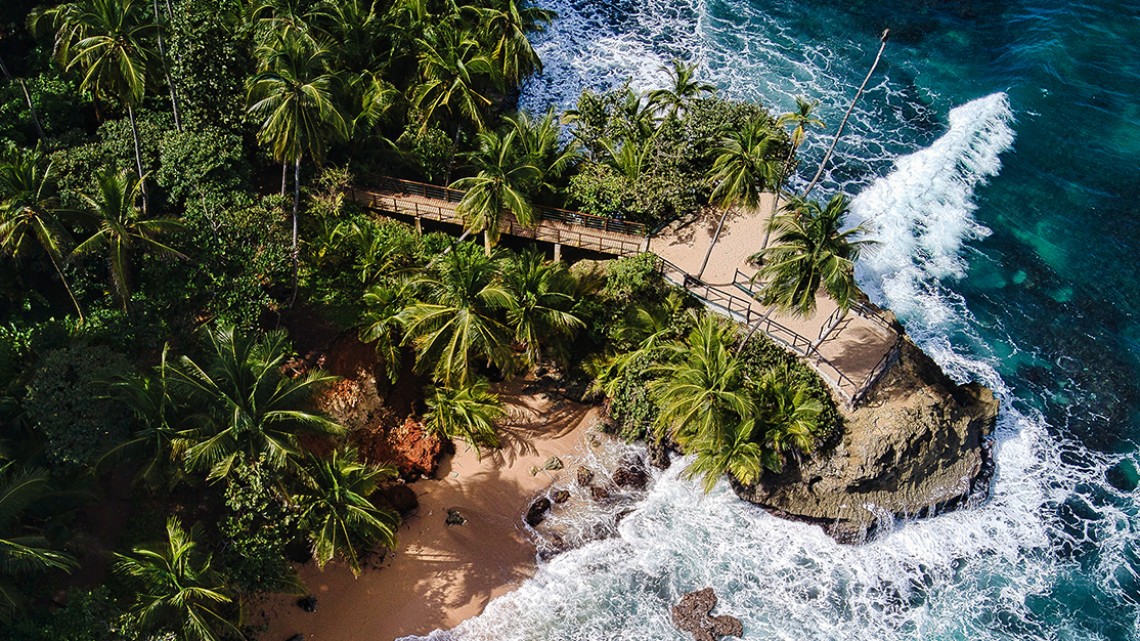
News directly from Cornell's colleges and centers
New Sustainable Tourism program charts course for travel’s future
By torie anderson.
At the intersection of travel and sustainability is sustainable tourism, a response to the growing need for the travel industry to ensure host communities receive socioeconomic benefits and are protected from adverse environmental effects. As business rebounds in the pandemic’s fourth year, tourism professionals are strategizing to reduce the “ invisible burden ” of tourism and address unprecedented challenges.
The Sustainable Tourism Asset Management Program (STAMP) – part of the Cornell SC Johnson College of Business – recently launched Sustainable Tourism Destination Management , a self-paced online course designed to train hospitality and tourism leaders in managing destination assets.
Delivered by eCornell, the course equips professionals working in a wide array of destinations with data-driven methods for measuring the impacts of tourism, managing natural resources, creating climate action plans and tracking economic development goals.
"Sustainability is essential to the future of tourism,” said Mark Milstein, clinical professor of management and faculty director of the Cornell Center for Sustainable Global Enterprise, where STAMP is located. “This program gives industry professionals the tools to ensure the competitiveness of tourist destinations in a manner that is strategic, holistic, and mindful of the relationship between visitors and residents.”
The course provides students with the tools and guidance to manage unaddressed costs of tourism operations at the local level and seeks to ensure that well-trained local teams can apply equitable and inclusive approaches to destination management. Students can use the program’s case studies, resources, and exercises immediately in their professional settings.
"Sustainable tourism is dependent on preserving our natural and cultural capital to ensure the economic viability of travel destinations. It is essential that hospitality and tourism leaders balance the promotion of tourism with the protection of destinations,” said Megan Epler Wood, STAMP managing director and the course’s lead instructor. “This new destination management course empowers professionals to build cooperation at the regional level to protect vital environmental, social and cultural heritage while facilitating inclusive community processes.”
Participants worldwide can enroll and gain access to training from more than two dozen renowned experts in the field, including Milstein and Epler Wood. The instructors partnered to develop the program and provide detailed, practical guidance on managing the invisible burden of tourism, a concept introduced in the Cornell Center for Sustainable Global Enterprise report “Destinations at Risk: The Invisible Burden of Tourism.”
The course was created with financial support from the German Agency for International Cooperation and the Travel Foundation. At least 1,000 students who live in developing countries and have financial barriers to enrollment will receive no-cost access to the program through the World Tourism Organization of the United Nations and the Travel Foundation.
“There are elements of the program that are important for those who want to understand what sustainability looks like at the cutting edge and not simply talk about green operations,” said Milstein. “The program is thoughtful, and it prepares students not just for the most basic conversations in this space but for much more significant ones that can put them in leadership positions on the subject matter.”
Media Contact
Media relations office.
Get Cornell news delivered right to your inbox.
You might also like

Gallery Heading
What Is Sustainable Tourism and Why Is It Important?
Sustainable management and socioeconomic, cultural, and environmental impacts are the four pillars of sustainable tourism
- Chapman University
:max_bytes(150000):strip_icc():format(webp)/HaleyMast-2035b42e12d14d4abd433e014e63276c.jpg)
- Harvard University Extension School
- Sustainable Fashion
- Art & Media
What Makes Tourism Sustainable?
The role of tourists, types of sustainable tourism.
Sustainable tourism considers its current and future economic, social, and environmental impacts by addressing the needs of its ecological surroundings and the local communities. This is achieved by protecting natural environments and wildlife when developing and managing tourism activities, providing only authentic experiences for tourists that don’t appropriate or misrepresent local heritage and culture, or creating direct socioeconomic benefits for local communities through training and employment.
As people begin to pay more attention to sustainability and the direct and indirect effects of their actions, travel destinations and organizations are following suit. For example, the New Zealand Tourism Sustainability Commitment is aiming to see every New Zealand tourism business committed to sustainability by 2025, while the island country of Palau has required visitors to sign an eco pledge upon entry since 2017.
Tourism industries are considered successfully sustainable when they can meet the needs of travelers while having a low impact on natural resources and generating long-term employment for locals. By creating positive experiences for local people, travelers, and the industry itself, properly managed sustainable tourism can meet the needs of the present without compromising the future.
What Is Sustainability?
At its core, sustainability focuses on balance — maintaining our environmental, social, and economic benefits without using up the resources that future generations will need to thrive. In the past, sustainability ideals tended to lean towards business, though more modern definitions of sustainability highlight finding ways to avoid depleting natural resources in order to keep an ecological balance and maintain the quality of environmental and human societies.
Since tourism impacts and is impacted by a wide range of different activities and industries, all sectors and stakeholders (tourists, governments, host communities, tourism businesses) need to collaborate on sustainable tourism in order for it to be successful.
The World Tourism Organization (UNWTO) , which is the United Nations agency responsible for the promotion of sustainable tourism, and the Global Sustainable Tourism Council (GSTC) , the global standard for sustainable travel and tourism, have similar opinions on what makes tourism sustainable. By their account, sustainable tourism should make the best use of environmental resources while helping to conserve natural heritage and biodiversity, respect the socio-culture of local host communities, and contribute to intercultural understanding. Economically, it should also ensure viable long-term operations that will provide benefits to all stakeholders, whether that includes stable employment to locals, social services, or contributions to poverty alleviation.
The GSTC has developed a series of criteria to create a common language about sustainable travel and tourism. These criteria are used to distinguish sustainable destinations and organizations, but can also help create sustainable policies for businesses and government agencies. Arranged in four pillars, the global baseline standards include sustainable management, socioeconomic impact, cultural impacts, and environmental impacts.
Travel Tip:
The GSTC is an excellent resource for travelers who want to find sustainably managed destinations and accommodations and learn how to become a more sustainable traveler in general.
Environment
Protecting natural environments is the bedrock of sustainable tourism. Data released by the World Tourism Organization estimates that tourism-based CO2 emissions are forecast to increase 25% by 2030. In 2016, tourism transport-related emissions contributed to 5% of all man-made emissions, while transport-related emissions from long-haul international travel were expected to grow 45% by 2030.
The environmental ramifications of tourism don’t end with carbon emissions, either. Unsustainably managed tourism can create waste problems, lead to land loss or soil erosion, increase natural habitat loss, and put pressure on endangered species . More often than not, the resources in these places are already scarce, and sadly, the negative effects can contribute to the destruction of the very environment on which the industry depends.
Industries and destinations that want to be sustainable must do their part to conserve resources, reduce pollution, and conserve biodiversity and important ecosystems. In order to achieve this, proper resource management and management of waste and emissions is important. In Bali, for example, tourism consumes 65% of local water resources, while in Zanzibar, tourists use 15 times as much water per night as local residents.
Another factor to environmentally focused sustainable tourism comes in the form of purchasing: Does the tour operator, hotel, or restaurant favor locally sourced suppliers and products? How do they manage their food waste and dispose of goods? Something as simple as offering paper straws instead of plastic ones can make a huge dent in an organization’s harmful pollutant footprint.
Recently, there has been an uptick in companies that promote carbon offsetting . The idea behind carbon offsetting is to compensate for generated greenhouse gas emissions by canceling out emissions somewhere else. Much like the idea that reducing or reusing should be considered first before recycling , carbon offsetting shouldn’t be the primary goal. Sustainable tourism industries always work towards reducing emissions first and offset what they can’t.
Properly managed sustainable tourism also has the power to provide alternatives to need-based professions and behaviors like poaching . Often, and especially in underdeveloped countries, residents turn to environmentally harmful practices due to poverty and other social issues. At Periyar Tiger Reserve in India, for example, an unregulated increase in tourists made it more difficult to control poaching in the area. In response, an eco development program aimed at providing employment for locals turned 85 former poachers into reserve gamekeepers. Under supervision of the reserve’s management staff, the group of gamekeepers have developed a series of tourism packages and are now protecting land instead of exploiting it. They’ve found that jobs in responsible wildlife tourism are more rewarding and lucrative than illegal work.
Flying nonstop and spending more time in a single destination can help save CO2, since planes use more fuel the more times they take off.
Local Culture and Residents
One of the most important and overlooked aspects of sustainable tourism is contributing to protecting, preserving, and enhancing local sites and traditions. These include areas of historical, archaeological, or cultural significance, but also "intangible heritage," such as ceremonial dance or traditional art techniques.
In cases where a site is being used as a tourist attraction, it is important that the tourism doesn’t impede access to local residents. For example, some tourist organizations create local programs that offer residents the chance to visit tourism sites with cultural value in their own countries. A program called “Children in the Wilderness” run by Wilderness Safaris educates children in rural Africa about the importance of wildlife conservation and valuable leadership development tools. Vacations booked through travel site Responsible Travel contribute to the company’s “Trip for a Trip” program, which organizes day trips for disadvantaged youth who live near popular tourist destinations but have never had the opportunity to visit.
Sustainable tourism bodies work alongside communities to incorporate various local cultural expressions as part of a traveler’s experiences and ensure that they are appropriately represented. They collaborate with locals and seek their input on culturally appropriate interpretation of sites, and train guides to give visitors a valuable (and correct) impression of the site. The key is to inspire travelers to want to protect the area because they understand its significance.
Bhutan, a small landlocked country in South Asia, has enforced a system of all-inclusive tax for international visitors since 1997 ($200 per day in the off season and $250 per day in the high season). This way, the government is able to restrict the tourism market to local entrepreneurs exclusively and restrict tourism to specific regions, ensuring that the country’s most precious natural resources won’t be exploited.
Incorporating volunteer work into your vacation is an amazing way to learn more about the local culture and help contribute to your host community at the same time. You can also book a trip that is focused primarily on volunteer work through a locally run charity or non profit (just be sure that the job isn’t taking employment opportunities away from residents).
It's not difficult to make a business case for sustainable tourism, especially if one looks at a destination as a product. Think of protecting a destination, cultural landmark, or ecosystem as an investment. By keeping the environment healthy and the locals happy, sustainable tourism will maximize the efficiency of business resources. This is especially true in places where locals are more likely to voice their concerns if they feel like the industry is treating visitors better than residents.
Not only does reducing reliance on natural resources help save money in the long run, studies have shown that modern travelers are likely to participate in environmentally friendly tourism. In 2019, Booking.com found that 73% of travelers preferred an eco-sustainable hotel over a traditional one and 72% of travelers believed that people need to make sustainable travel choices for the sake of future generations.
Always be mindful of where your souvenirs are coming from and whether or not the money is going directly towards the local economy. For example, opt for handcrafted souvenirs made by local artisans.
Growth in the travel and tourism sectors alone has outpaced the overall global economy growth for nine years in a row. Prior to the pandemic, travel and tourism accounted for an $9.6 trillion contribution to the global GDP and 333 million jobs (or one in four new jobs around the world).
Sustainable travel dollars help support employees, who in turn pay taxes that contribute to their local economy. If those employees are not paid a fair wage or aren’t treated fairly, the traveler is unknowingly supporting damaging or unsustainable practices that do nothing to contribute to the future of the community. Similarly, if a hotel doesn’t take into account its ecological footprint, it may be building infrastructure on animal nesting grounds or contributing to excessive pollution. The same goes for attractions, since sustainably managed spots (like nature preserves) often put profits towards conservation and research.
Costa Rica was able to turn a severe deforestation crisis in the 1980s into a diversified tourism-based economy by designating 25.56% of land protected as either a national park, wildlife refuge, or reserve.
While traveling, think of how you would want your home country or home town to be treated by visitors.
Are You a Sustainable Traveler?
Sustainable travelers understand that their actions create an ecological and social footprint on the places they visit. Be mindful of the destinations , accommodations, and activities you choose, and choose destinations that are closer to home or extend your length of stay to save resources. Consider switching to more environmentally friendly modes of transportation such as bicycles, trains, or walking while on vacation. Look into supporting locally run tour operations or local family-owned businesses rather than large international chains. Don’t engage in activities that harm wildlife, such as elephant riding or tiger petting , and opt instead for a wildlife sanctuary (or better yet, attend a beach clean up or plan an hour or two of some volunteer work that interests you). Leave natural areas as you found them by taking out what you carry in, not littering, and respecting the local residents and their traditions.
Most of us travel to experience the world. New cultures, new traditions, new sights and smells and tastes are what makes traveling so rewarding. It is our responsibility as travelers to ensure that these destinations are protected not only for the sake of the communities who rely upon them, but for a future generation of travelers.
Sustainable tourism has many different layers, most of which oppose the more traditional forms of mass tourism that are more likely to lead to environmental damage, loss of culture, pollution, negative economic impacts, and overtourism.
Ecotourism highlights responsible travel to natural areas that focus on environmental conservation. A sustainable tourism body supports and contributes to biodiversity conservation by managing its own property responsibly and respecting or enhancing nearby natural protected areas (or areas of high biological value). Most of the time, this looks like a financial compensation to conservation management, but it can also include making sure that tours, attractions, and infrastructure don’t disturb natural ecosystems.
On the same page, wildlife interactions with free roaming wildlife should be non-invasive and managed responsibly to avoid negative impacts to the animals. As a traveler, prioritize visits to accredited rescue and rehabilitation centers that focus on treating, rehoming, or releasing animals back into the wild, such as the Jaguar Rescue Center in Costa Rica.
Soft Tourism
Soft tourism may highlight local experiences, local languages, or encourage longer time spent in individual areas. This is opposed to hard tourism featuring short duration of visits, travel without respecting culture, taking lots of selfies , and generally feeling a sense of superiority as a tourist.
Many World Heritage Sites, for example, pay special attention to protection, preservation, and sustainability by promoting soft tourism. Peru’s famed Machu Picchu was previously known as one of the world’s worst victims of overtourism , or a place of interest that has experienced negative effects (such as traffic or litter) from excessive numbers of tourists. The attraction has taken steps to control damages in recent years, requiring hikers to hire local guides on the Inca Trail, specifying dates and time on visitor tickets to negate overcrowding, and banning all single use plastics from the site.
Traveling during a destination’s shoulder season , the period between the peak and low seasons, typically combines good weather and low prices without the large crowds. This allows better opportunities to immerse yourself in a new place without contributing to overtourism, but also provides the local economy with income during a normally slow season.
Rural Tourism
Rural tourism applies to tourism that takes place in non-urbanized areas such as national parks, forests, nature reserves, and mountain areas. This can mean anything from camping and glamping to hiking and WOOFing. Rural tourism is a great way to practice sustainable tourism, since it usually requires less use of natural resources.
Community Tourism
Community-based tourism involves tourism where local residents invite travelers to visit their own communities. It sometimes includes overnight stays and often takes place in rural or underdeveloped countries. This type of tourism fosters connection and enables tourists to gain an in-depth knowledge of local habitats, wildlife, and traditional cultures — all while providing direct economic benefits to the host communities. Ecuador is a world leader in community tourism, offering unique accommodation options like the Sani Lodge run by the local Kichwa indigenous community, which offers responsible cultural experiences in the Ecuadorian Amazon rainforest.
" Transport-related CO 2 Emissions of the Tourism Sector – Modelling Results ." World Tourism Organization and International Transport Forum , 2019, doi:10.18111/9789284416660
" 45 Arrivals Every Second ." The World Counts.
Becken, Susanne. " Water Equity- Contrasting Tourism Water Use With That of the Local Community ." Water Resources and Industry , vol. 7-8, 2014, pp. 9-22, doi:10.1016/j.wri.2014.09.002
Kutty, Govindan M., and T.K. Raghavan Nair. " Periyar Tiger Reserve: Poachers Turned Gamekeepers ." Food and Agriculture Organization.
" GSTC Destination Criteria ." Global Sustainable Tourism Council.
Rinzin, Chhewang, et al. " Ecotourism as a Mechanism for Sustainable Development: the Case of Bhutan ." Environmental Sciences , vol. 4, no. 2, 2007, pp. 109-125, doi:10.1080/15693430701365420
" Booking.com Reveals Key Findings From Its 2019 Sustainable Travel Report ." Booking.com.
" Economic Impact Reports ." World Travel and Tourism Council .
- Regenerative Travel: What It Is and How It's Outperforming Sustainable Tourism
- How to Be a Sustainable Traveler: 18 Tips
- What Is Ecotourism? Definition, Examples, and Pros and Cons
- Some Advice on How to Travel More Intentionally
- 'The Last Tourist' Film Will Make You Approach Travel Differently
- Best of Green Awards 2021: Sustainable Travel
- Costa Rica’s Keys to Success as a Sustainable Tourism Pioneer
- What Is Community-Based Tourism? Definition and Popular Destinations
- What Is Overtourism and Why Is It Such a Big Problem?
- What Is Experiential Tourism?
- What Is Voluntourism? Does It Help or Harm Communities?
- Food Sovereignty: Definition, Principles, and Importance
- Best of Green Awards 2021: Eco Tech
- 10 Ways to Be an Eco-Conscious Tourist
- Travel + Leisure's Global Vision Awards Are a Win for the Planet
- Spain Starts a School for Shepherdesses
- Current Students
- Faculty + Staff
- Alumni + Friends
- Parents + Family
- Community + Visitors
- Bachelor's Degrees
- Master's Degrees
- Doctorate Degrees
- Certificates
- Arts & Design
- Business & Industry
- Communications & Media
- Data Analytics & Information
- Health & Wellness
- Humanities & Social Sciences
- Music & Performing Arts
- Public Service
- Multidisciplinary
- Still Exploring & Undetermined
- International
- Bienvenidos
- Featured Videos
- College Tour
- Tuition & Aid
- Student Life
- Search Type Search Search
- Quicklinks:
- STUDENT EMAIL
- UNT DIRECTORY
- INFO FOR CURRENT STUDENTS
- INFO FOR FACULTY + STAFF
- INFO FOR ALUMNI + FRIENDS
- INFO FOR PARENTS + FAMILY
- INFO FOR COMMUNITY + VISITORS
- UNT LIBRARIES
- UNT CALENDAR
- JOBS AT UNT

International Sustainable Tourism Master's
Want more info.
We're so glad you're interested in UNT! Let us know if you'd like more information and we'll get you everything you need.
Why Earn an International Sustainable Tourism Masters?
This program is a joint Master of Science degree in International Sustainable Tourism (MIST) between UNT and CATIE (The Tropical Agricultural Research and Higher Education Center) in Turrialba, Costa Rica.
Our MIST program provides you with unique opportunities such as:
- Analysis of sustainable tourism in the USA and Costa Rica
- Hospitality applications of sustainable tourism
- Operational and policy perspectives of sustainable tourism
- International instruction from industry experts and experienced researchers
- Understanding of sustainable tourism development
- Application of appropriate research methods
- Research presentation
- Governmental strategic planning
- Best practice identification and facilitation
International Sustainable Tourism Master's Highlights
What can you do with a master's in international sustainable tourism.
The travel sector is one of the world's biggest industries. One of every 10 jobs globally comes from the travel and tourism sector, according to the World Travel and Tourism Council. It's vital for tourism development professionals to understand the interdependencies of economic benefits, environmental impacts, and social and cultural resources. The course work will prepare you for management and leadership positions in the international sustainable tourism industry or advancement toward a doctoral degree.
International Sustainable Tourism Master's Courses You Could Take
Learn More About UNT
Explore more options.
It’s easy to apply online. Join us and discover why we’re the choice of nearly 47,000 students.

- GSTC Mission & Impacts
- GSTC History
- Market Access Program
- GSTC Board of Directors
- Assurance Panel
- Working Groups
- GSTC Sponsors
- GSTC Members
- Recruitment
- Contact GSTC
- GSTC For the Press
- Criteria Development, Feedback & Revisions
- Sustainable Tourism Glossary
- SDGs and GSTC Criteria
- GSTC Industry Criteria
- GSTC Destination Criteria
- GSTC MICE Criteria
- Criteria Translations
- GSTC-Recognized Standards for Hotels
- GSTC-Recognized Standards for Tour Operators
- GSTC-Recognized Standards for Destinations
- Recognition of Standards (for Standard Owners)
- GSTC-Committed
- Certification for Hotels
- Certification for Tour Operator
- Certification for Destination
- Accreditation for Certification Bodies
- Accredited Certification Bodies
- Stakeholder Consultations
- What is Certification? Accreditation? Recognition?
- Sustainable Tourism Training Program (STTP)
- Upcoming Courses
- Professional Certificate in Sustainable Tourism
- Professional Certificate in Sustainable Business Travel
- GSTC Trainers and Partners
- FAQs: GSTC Training Program
- Organization Membership Application
- Destination Membership Application
- Membership Policy
- Membership Categories & Fees
- Membership Payment Options
- Webinars for GSTC Members
- Members Log In
- Upcoming Webinars
- GSTC2024 Sweden, Apr 23-26
- GSTC2024 Singapore, Nov 13-16
- Past Conferences
- Destination Stewardship Report
GSTC Criteria
The global sustainability standards in travel and tourism, what is sustainable tourism.
There are many terms that float around that may sound similar but actually refer to something distinct.
Definition of Sustainable Tourism
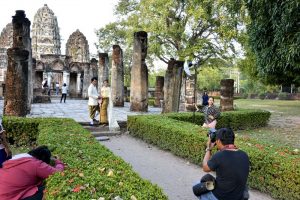
Negative impacts to a destination include economic leakage, damage to the natural environment and overcrowding to name a few.
Positive impacts to a destination include job creation, cultural heritage preservation and interpretation, wildlife preservation landscape restoration, and more.
Sustainable tourism is defined by the UN Environment Program and UN World Tourism Organization as “tourism that takes full account of its current and future economic, social and environmental impacts, addressing the needs of visitors, the industry, the environment and host communities.”
Additionally, they say that sustainable tourism “refers to the environmental, economic, and socio-cultural aspects of tourism development, and a suitable balance must be established between these three dimensions to guarantee its long-term sustainability” ( UNEP & UNWTO , 2005: 11-12. Making Tourism More Sustainable – A Guide for Policy Makers ).
Definition of Ecotourism
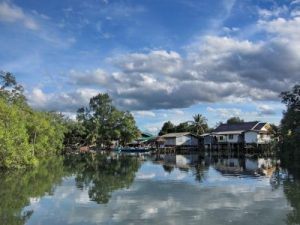
Fennell described it as such: “Ecotourism is a sustainable form of natural resource-based tourism that focuses primarily on experiencing and learning about nature, and which is ethically managed to be low-impact, non-consumptive, and locally-oriented. It typically occurs in natural areas, and should contribute to the conservation or preservation of such areas” (Fennell, 1999: 43. Ecotourism: An Introduction ).
The Mohonk Agreement (2000) , a proposal for international certification of Sustainable Tourism and Ecotourism, saw ecotourism as “sustainable tourism with a natural area focus, which benefits the environment and communities visited, and fosters environmental and cultural understanding, appreciation, and awareness.”
The ecotourism definition by the Global Ecotourism Network (GEN) : “Ecotourism is responsible travel to natural areas that conserves the environment, sustains the well-being of the local people, and creates knowledge and understanding through interpretation and education of all involved (visitors, staff and the visited).”
Definitions of Responsible Travel
Responsible Travel refers to the behavior of individual travelers aspiring to make choices according to sustainable tourism practices. The behaviors usually align with minimizing the negative impacts and maximizing positive ones when one visits a tourism destination.
Travelers that want to learn more about how to be a responsible traveler can visit the section on the GSTC website For Travelers .
Summary of the difference between Sustainable Tourism, Ecotourism, and Responsible Travel
Ecotourism is a niche segment of tourism in natural areas.
Sustainable Tourism does not refer to a specific type of tourism, rather it is an aspiration for the impacts of all forms of tourism to be sustainable for generations to come.
Responsible Travel is a term referring to the behavior and style of individual travelers. The behaviors align with making a positive impact to the destination rather than negative ones.
Sustainable Tourism and the GSTC Criteria
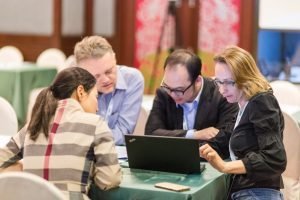
They are the result of a worldwide effort to develop a common language about sustainability in tourism. They are categorized in four pillars: (A) Sustainable management; (B) Socioeconomic impacts; (C) Cultural impacts; (D) Environmental impacts.
These standards were built on decades of prior work from industry experts around the globe. During the process of development, they were widely consulted in both developed and developing countries. They reflect our goal in attaining a global consensus on sustainable tourism.
The process of developing the Criteria was designed to adhere to the standards-setting code of the ISEAL Alliance. The ISEAL Alliance is the international body providing guidance for the management of sustainability standards in all sectors. That code is informed by relevant ISO standards .
Finally, the GSTC Criteria are the starting goals that businesses, governments, and destinations should achieve. Tourism destinations each have their own culture, environment, customs, and laws. Therefore, the Criteria are designed to be adapted to local conditions and supplemented by additional criteria for the specific location and activity.
There are three sets of Criteria
- GSTC Industry Criteria = relates to the sustainable management of private sector travel industry, focusing currently on Hotels and Tour Operators.
- GSTC Destination Criteria = relates to sustainable management of Tourism Destinations.
- GSTC MICE Criteria = relates to sustainable management of Venues, Event Organizers and Events & Exhibitions.
Learn more about Sustainable Tourism
Reading one article is not enough. The GSTC website offers those interested in learning more about sustainable tourism the needed resources. Make sure you visit the relevant pages for you:
- For Hotels & Accommodations
- For Tour Operators
- For Governments & Destinations
- For Corporate and Business Travel
You can also join one of the regular GSTC courses:
- Want to gain in-depth knowledge of the GSTC Criteria and understand sustainable tourism? The GSTC Sustainable Tourism course is for you.
- Engaged with corporate and business travel? The GSTC Sustainable Business Travel course is for you.
- Are you a hotelier or work in the hospitality sector? GSTC Sustainable Hotel course
GSTC Sustainable Tourism Training Schedule
✓ Gain in-depth knowledge of the GSTC Criteria, the global standard for sustainability in travel and tourism. ✓ Make informed decisions on how to implement sustainability practices for your company or destination. ✓ Get ready for developing viable and actionable sustainable tourism policies and practices for your organization
I’ve participated in the course to get a comprehensive overview of destination sustainability criteria. Much more than this, the course gave me the up-to-date analysis of current trends, and a huge number of relevant cases from the destinations, the industry networks and the service providers. I strongly recommend to attend the course.

My course facilitator and teacher (Ayako and Antje) went above and beyond to answer our questions and provide us with additional resources. The course content (the GSTC Criteria) was delivered in an understandable and organized way. Learning the GSTC Criteria and how it applies to our own projects, businesses, and destinations is integral to anyone wanting to do any kind of work in the future centered around travel. I appreciated that the course was delivered in an interactive way over Zoom, and not just something we watched on YouTube. For me, being able to interact with fellow students from around the world, was a big plus. Was well worth it, and I highly recommend the course!

This course has been very relevant and provides in-depth knowledge of GSTC criteria for sustainable practices for destinations as well as the travel industry [with] plenty of real life examples and share links to plenty of reading material throughout the course. … As we move forward during these difficult COVID times, learning our lessons on the damage to nature, it becomes all the more important for industry professionals to get trained and step up efforts to embrace sustainability in all aspects of tourism. Hence, I recommend this course to all industry professionals.

This course enables participants to connect with the GSTC team directly, over an easy to use platform and network around the world. Using real life examples and detail in each of the 4 sections of the GSTC.

The GSTC training was a great way to connect, network, and engage in mind-broadening and eye-opening discussions with others in the diverse field of sustainable tourism. I would highly recommend this as a starting point for anyone interested in the journey of regenerative and sustainable tourism.

The course was great and the on- the-go discussions added great value to keep abreast of trends from across the globe. Participants from various parts of the world brought in their experiences and made the course very interesting.

Hearing about actual destinations applying Sustainable Tourism initiatives and learning from real situations practicing Sustainable Tourism, as well as the related successes and challenges, was very informative and valuable. My favorite part was the unexpected camaraderie from and connections with the other participants. I genuinely enjoyed the online discussion, sharing of ideas, and breakout groups and, overall, meeting so many others who she a passion for Sustainable Tourism. Thank you, GSTC, for a great course!

A complete holistic approach to sustainable tourism. The comprehensive lessons given each week break down the GSTC Criteria and are paired with practical examples, international experts and ‘hands on’ online workshops. The opportunity to discuss and share insights from all the participants around the world not only contributes to my own knowledge but to also my professional network. I highly recommend this course for anyone discovering sustainable tourism.

The course is quick and handy way to immerse in the issues of Sustainability in Tourism and a great kick start in starting your own business or destination program. I could have had the course even longer and especially the live sessions were great to get to know some of the other participants and share their knowledge and experiences – best practices are the best way to get started and to get valuable information. Highly recommended!

The course was so informative and presented in an engaging & interesting way. The examples & speakers gave us a lot to think about and many tangible ways that we can make a difference in our travel business. Thank you!

This course has given me an approach to the GSTC Criteria, where the basic and complete structure to move forward on sustainable paths is visualized. The reflections generated through real examples, discussions and available material are key to better internalize what sustainability means. Ideas applicable to our business and our work area appear during the course that contribute positively to one’s reality. I will recommend this course, for its contribution to the objective, honest and constructive understanding of what sustainability is.

I can only highly recommend the course for every travel and tourism professional- it is a great motivational boost to get into action and helps me support destinations in bringing the idea of destination stewardship – an inclusive and holistic approach – alive. We do not need more and more tourists, we need sustainable tourism.

Taking the GSTC training at this point in time was extremely valuable. It gave me a sustainable tourism framework to help assess what I’ve been able to accomplish and also consider the role that sustainable experiential travel may mean as we begin to inch our way out of the world of zero tourism towards something likely new and different. One other great benefit of the training was starting to get acquainted and sharing with other participants and instructors from around the globe. These connections will be valuable for a very long time to come.

I found this online course well structured and enjoyable. The trainers are really inspiring, extremely knowledgeable about the field and very supportive. The live online sessions give a great introduction to key topics, and there are online lessons, discussion forums and reference material to deepen knowledge. I feel like I have access to so much wisdom, and it is great to be part of a global community of sustainable tourism practitioners.
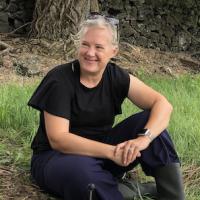
Thank you GSTC for such a great course. The content was relevant, the case studies were inspiring and the course structure was spot on! I can’t wait to take my learnings and inspiration and activate it across regional destinations in Australia. Keep up the great work.

What I liked the most about this course is the well-defined structure, the opinion sharing with online classmates, and the up-to-date topics. It makes the experience much more effective and enjoyable.

Excellent course that sets the foundations for sustainable tourism practice.I was very new with sustainable tourism and now after the course I have very solid understanding and skills to apply to my job. In addition, the amazing network of professionals sharing ideas is another great tool!
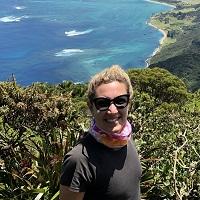
This course provided me with a thorough understanding of how to implement sustainable travel practices. I will definitely integrate information from this training into my work with travel organizations and destinations to help them achieve short-term progress through a long-term strategy.

The GSTC training provides a comprehensive overview of key indicators for a holistic view of sustainable tourism. The training provided an excellent opportunity to network with other tourism professionals, and to share ideas, develop plans, and comment on sustainable tourism initiatives that are being implemented in a diverse array of locations globally. I’m grateful for the connections that I made and for the helpful feedback on ideas for improving sustainability in several operations.

Useful and inspiring! The way the course is organised with lots of practical experience from colleagues in the tourism sector is indeed the most useful and interesting part of the course, [making it easier] to approach the GSTC criteria.

The GSTC course was really great to me because it gave me an in-depth knowledge about sustainable tourism. The combination of the criteria explanation and the presentation from other experts was really great, as it gave us the know-how, lots of samples and case studies. Before joining this course, I had heard about the term sustainable tourism many times, but [was not sure] what it is all about and how we can achieve it. I am glad to have gained the bigger picture of sustainable tourism. I’m developing my village to be a community based tourism destination, and now I can adopt and apply the standard locally.
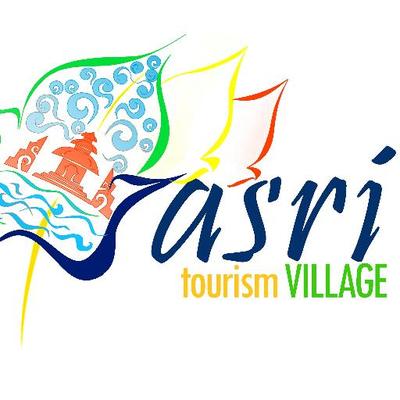
A great training program that gives the participants a thorough understanding on the sustainable management of both destinations and individual businesses. Anyone from the industry – from the business or the government side – should understand the bigger picture of the destination level management as well as the industrial level so that both public and private sectors can work together for a more sustainable tourism industry.

The GSTC Sustainable Tourism Training Program provided an up-to-date perspective and holistic approach on the topic. I really enjoyed taking part in the group discussions and hearing about the realities of other destinations and their challenges.

I think the training was very useful and gave me many insights that I will use in my daily work to develop more sustainable tourism. The training class was also a good group for networking.

The Global Sustainable Tourism Council (GSTC) is the most widely recognized institution for offering sustainability courses for tourism professionals.

This is a one-of-a-kind course that provides the tools in getting you started. Not to mention, you’re also collaborating with people and organizations across the globe facing similar challenges. The feedback from fellow students was invaluable and honestly, what better way to tackle some big challenges related to the environment than with people from different countries and backgrounds. I’d take this course again just for those connections!

The [GSTC course] has been a remarkable learning experience and a great introduction to sustainable tourism. The combination of online resources, discussion forums, weekly live events with guest presenters provides a deeper understanding and useful tools in sustainable tourism. The trainers have incredible expertise in both tourism and sustainability and share their knowledge and passion about current sustainability practices. I would highly recommend this course to everyone involved in the tourism industry or have a interest in sustainable tourism.
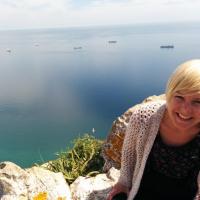
An excellent programme run by well qualified professional staff and trainers. The guest speakers were world class and materials industry leading. A definite must for any tourism professional who is serious about making sustainable impacts for the betterment of our industry.

Amazing learning experience. Exceeded my expectations by far. Excellently organized and facilitated. Great dynamics in discussions with course participants – so much to learn from. Highly valuable best practices and interactive modules really made the best learning experience I had until now! It really motivated and inspired me to continue on the road of global sustainable tourism.

The GSTC Sustainable Tourism Training gave me the tools and network to be able to work for a more sustainable tourism sector in the area where I’m based (South Sweden). The structure with the four principles makes it easy to follow and to discuss also outside the GSTC world. The examples from the other participants were great, and we will continue sharing good and bad examples from destinations all over the world.

To work on sustainability is a never-ending story and can be overwhelming at times. The GSTC training supports a structured approach toward continuous improvement. It provides applicable tools to evaluate our sustainability performance and guidance for setting long-term strategies. It allows you to break down this massive task into achievable working packages.

The GSTC training was a great first touch point for me into the world of sustainable tourism and destination management. I loved hearing case studies from around the world and real life examples on how the GSTC criteria can make a difference. The course has enabled me to start building on these criteria within my job.

The training has enable me to go through all the GSTC Criteria thoroughly with better knowledge of sustainable tourism standard and practices. It will be useful as basic guidelines for the Foundation to use these Criteria, as the destination wants to embark in becoming a sustainable tourism destination, aiming to become GSTC-Certified.

I would definitely recommend GSTC training to absolutely everyone in the tourism industry. The entire [GSTC] framework is extremely useful and important – a framework of values and ideas that is evolving, and that is meant for us a roadmap to make things better for people and companies that may be starting from different points in the journey towards sustainability.

The quality of this training was really first class; materials, presentations, trainer support, resources and discussions. The forum helped keep everything relevant and up to date, and I also liked the format of the live events. All guest presenters were excellent; I liked that they were sharing real life experiences and not just theoretical examples. From each and every live presentation I gained ideas, reinforcements to my own experiences and enthusiasm for what I and my colleagues are doing in our own part of the world.

The STTP programme has been a good introduction to the principles of sustainable tourism. It was a good mix of presentations and cases of sustainable tourism in real-life, insights from experts from various countries and across tourism sectors and explanation of key GSTC criteria. Participants were encouraged to share their experiences and observations through discussion forums and presentations, which made the sessions more lively. The final exam is recommended for those who wish to test their ability to put these principles to practice. I highly recommend this course to tourism industry professionals wishing to incorporate sustainable tourism management at work.

The GSTC training provided me with a deep understanding of the criteria. My fellow classmates were industry experts in various sectors from around the world, bringing the criteria to life with valuable examples/discussions of how they have implemented the very practices we were learning.

My first impression was the organization, it was perfect regarding the admin efforts and the learning tools. The course materials were really useful, as well as the live sessions from which I gained a deep understanding and experience from the other participants. I really want to have the chance to thank all the team who was involved, and of course I would recommend people working in the tourism industry to join this course
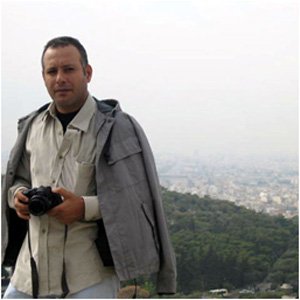
The training gave me a clear understanding of the challenges we face and the actions to take to make sustainability effective, [covering] each of the main areas in a systematic way with enough technical detail for those who needed it, without losing the less technical trainees (like myself) who needed to understand the broad overview of sustainable tourism practices

The overview of standards, coupled with best practice and real world examples has been very beneficial for my work in destination management and responsible tourism development. The ability to meet likeminded industry colleagues, who are working in this arena was also highly valuable.

Share This Story, Choose Your Platform!
Related posts.
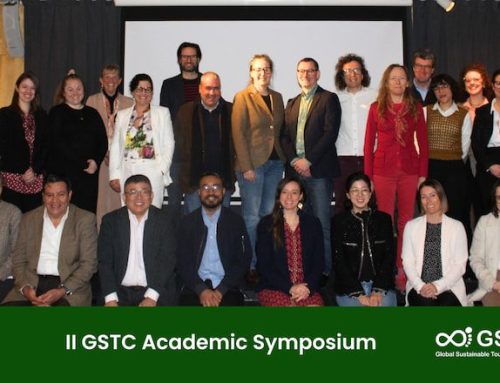
II GSTC Academic Symposium concluded successfully
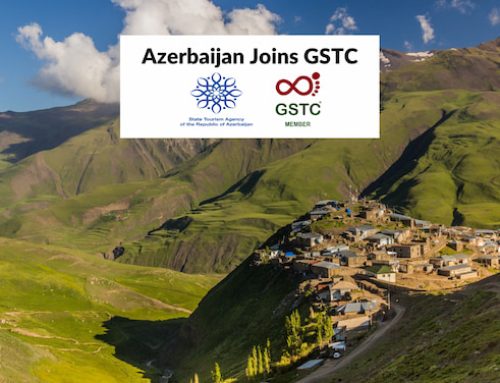
Azerbaijan joins and signs MOU with GSTC
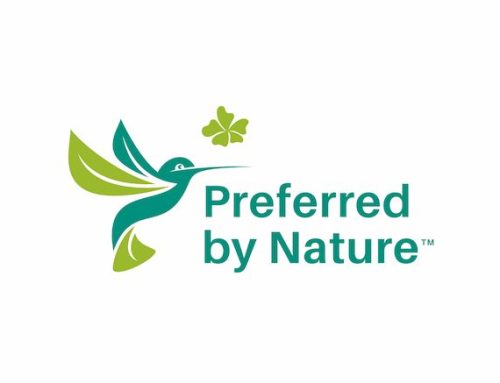
Preferred by Nature Standard gains GSTC-Recognized Standard Status
Sustainable Tourism Destination Management
New online course by cornell stamp from ecornell.
STAMP has created an 8-module online, self-paced Cornell course on Sustainable Tourism Destination Management for professionals and students. The program is available through eCornell. This course aims to train global hospitality and tourism professionals in using sustainable practices across all areas of the tourism industry. Throughout the course, you will be introduced to innovative, data-driven methods for destination management, delivered by over 25 world-renowned experts in the field.
You will begin by identifying the different components that make up the global tourism industry and examine the effects each of these components has on a destination’s social, cultural, and environmental well-being.You will then acquire the tools needed to manage your destination sustainably by designing a climate action plan, documenting and accommodating natural capital needs, improving land-use planning, engaging with local communities, and managing public-private partnerships. Ultimately, you will be able to contribute to the economic development of a destination while also protecting its health.
Sign up for the course
Learn About Financial Support
Course Alumni Testimonials
"If you are a tourism expert or consultant who has wondered why entrance fees need to be increased or have worked with destinations that are facing an unsustainable future, you will get a lot out of this course. If we wish to cultivate regenerative culture, it has to be place-based and people-centered, and we must shape tourism to help places and people flourish, socially, environmentally and economically." - Do Phuong, Course Participant, Slow Travel Hue, Vietnam
"The insights and teachings have broadened my understanding of sustainable tourism and equipped me with practical strategies to implement in real-world scenarios. The instructors’ passion for creating sustainable destinations is evident in their engaging teaching style, which makes every session a valuable learning opportunity. I'm excited to put this newfound expertise into practice and positively impact the world of travel." - Aditi Choudhary, Course Participant, India Institute of Tourism and Travel Management
The course provided extensive insight into real-world examples of sustainable practices in every aspect of global tourism and hospitality, and gave me opportunities to learn, exchange, and apply. I feel prepared to take this practical knowledge and apply it to current problems and prospects for Central Asian tourism. - Dr. Gulnoza Usmonova, Course Participant, Central Asian University, Uzbekistan
Faculty and Speakers
The program includes award-winning faculty and practitioners who will share destination management expertise from across the globe on urgent themes including climate change and over tourism. Participants will gain access to worksheets and downloadable tools to apply directly in professional settings, to informative targeted readings; graphics and animation to demonstrate complex issues; and research spotlights from top experts on cutting-edge destination management issues.

Megan Epler Wood Managing Director, Cornell STAMP, Cornell SC Johnson College of Business

Mark Milstein Clinical Professor, SC Johnson College of Business
Course Speakers Include
- Anthony Capuano , Marriott
- Keith Vincent and Aline Umutoni , Wilderness Safaris
- Sally Davey , Travalyst
- Api Movono , Massey University
- Keenan Adams , US Forest Service
Program Modules Include:
- Tourism Industry Overview
- The Invisible Burden of Tourism: Measuring Unaccounted for Impacts
- Managing the Invisible Burden of Tourism
- Managing Climate Impacts of Tourism
- Defining and Achieving Key Economic Development Goals
- Equitable and Inclusive Management of Tourism Shared Assets
- Developing Dedicated Destination Management Capacity
- Developing Long-Term Destination Management Plans
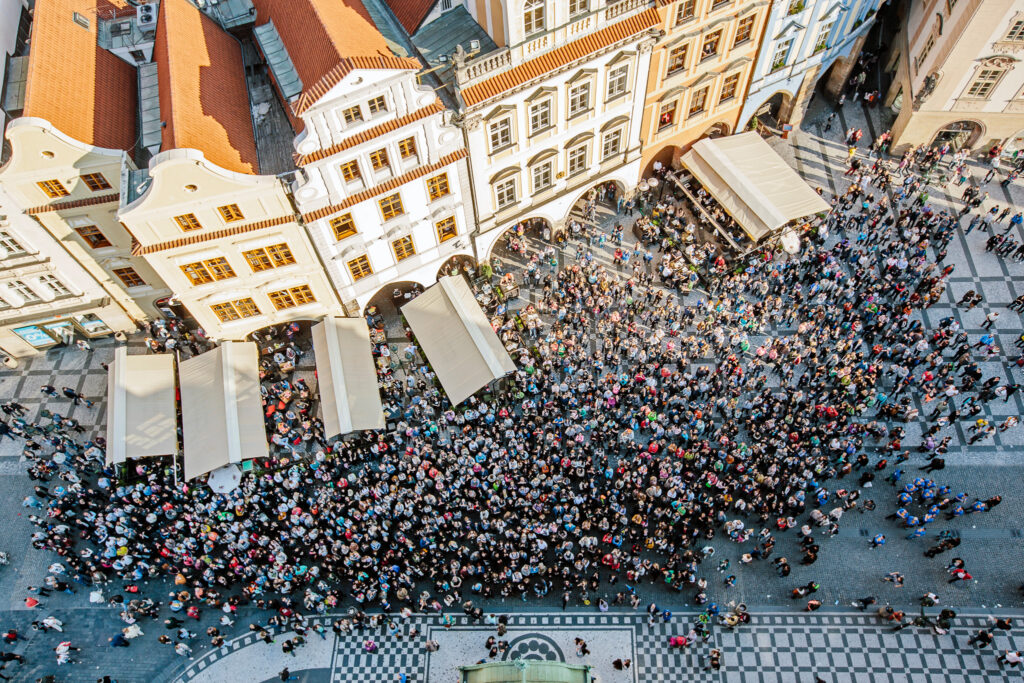

Learning Outcomes
- How the global tourism economy is structured, the role of destinations in securing long-term value, and the absence of efficient sustainable destination management programs.
- Which social and environmental impacts cause the “Invisible Burden of Tourism” on destinations and how to begin to measure these impacts.
- How to document water, waste, energy and natural capital management needs for the long-term well-being of residents and visitors, as well as review key components of a sustainable finance strategy.
- How to protect a destination’s natural and cultural capital via participatory master planning and introduce assessments to identify how tourism can support essential economic development goals that secure economic health and achieve long-term benefits to local societies.
- How to design a climate action plan for a tourism destination that is linked to science-based targets, local climate planning, and broader destination management goals.
- How to track essential economic development goals that secure long-term economic health and develop systems to retain destination value in the long term.
- Methods to facilitate an inclusive process where communities co-develop positive economic outcomes from tourism in a range of destination development settings which reach a broad range of society.
- Transform destination governance by promoting public-private partnerships, data-driven decision making, and innovative financing to increase financial benefits from tourism, protect destination assets, and allow the private sector to benefit from sustainable destination management.
- How to synthesize sustainable destination management tools and concepts to create a holistic destination management plan and provide opportunities to apply them to critical real-life case studies from the tourism sector.
The program was developed by the Cornell SC Johnson College of Business’ Center for Sustainable Global Enterprise Sustainable Tourism Asset Management Program (STAMP) in partnership with global NGO The Travel Foundation , with financial support from Deutsche Gesellschaft für Internationale Zusammenarbeit (GIZ) on behalf of the German Federal Ministry for Economic Cooperation and Development (BMZ) .

Outside USA: +1‑607‑330‑3200
Sustainable Tourism Destination Management Self-Paced Cornell Course
Course overview.
This course aims to train global hospitality and tourism professionals in using sustainable practices across all areas of the tourism industry. Throughout the course, you will be introduced to innovative, data-driven methods for destination management, delivered by over 20 world-renowned experts in the field. You will begin by identifying the different components that make up the global tourism industry and examine the effects each of these components has on a destination’s social, cultural, and environmental well-being. You will then acquire the tools needed to manage your destination sustainably by designing a climate action plan, documenting and accommodating natural capital needs, improving land-use planning, engaging with local communities, and managing public-private partnerships. Ultimately, you will be able to contribute to the economic development of a destination while also protecting its health.
Key Course Takeaways
- Define the global tourism economy and measure the social and environmental impacts of tourism
- Document water, waste, energy, and natural capital management needs
- Design a climate action plan for your tourism destination
- Track how tourism can support essential economic development goals
- Facilitate an inclusive process where local communities review and protect their own cultural and natural assets
- Transform destination governance by promoting public-private partnerships, data-driven decision making, and innovative financing
- Synthesize sustainable destination management tools by applying them to real-life tourism case studies

Download a Brochure
Strategic partners.
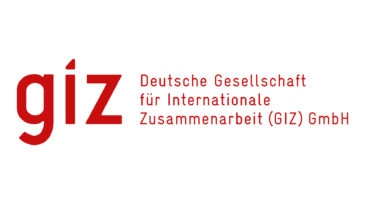
How It Works
Course authors.

- Certificates Authored
Mark Milstein is Clinical Professor of Management and Director of the Center for Sustainable Global Enterprise at the Samuel Curtis Johnson Graduate School of Management, Cornell University. He conducts applied research in and oversees the Center’s work on market and enterprise creation, business development, clean technology commercialization, and sustainable finance.
Dr. Milstein specializes in framing the world’s social and environmental challenges as unmet market needs which can be addressed effectively by the private sector through innovation and entrepreneurship, thereby allowing companies to achieve financial success by creatively addressing problems such as climate change, ecosystem degradation, and poverty. He has received funding from the National Science Foundation, the Bill & Melinda Gates Foundation, the Rockefeller Foundation the S.C. Johnson Foundation, SEvEN, the World Bank, the University of Queensland, and the Water Resources Institute. Over the past decade, Dr. Milstein has worked with more than 100 firms across a range of industries, including renewable energy and carbon markets, life sciences and sustainable agriculture, consumables, food and nutrition, healthcare, tourism and hospitality management, as well as finance and international development.
Dr. Milstein’s work and perspectives have been featured in The New York Times, MSNBC, CNBC, Forbes, The Guardian, and GreenBiz. He is a frequent speaker on the topics of strategy, organizational change, and innovation related to business and sustainability. He also consults with a number of multinational firms, small- and medium-sized enterprises, and NGOs. Dr. Milstein currently serves on the board of directors of Livelihood Basix International and as a board member for Johnson & Johnson’s Earthwards Program.
- Omnichannel Leadership Program
- Sustainable Business
- Food Executive Program

Megan Epler Wood is a leader, educator, and consultant who has dedicated her professional career to the implementation of sustainability practices in the field of tourism. She has worked for over 30 years to inform leaders, students, and business professionals across the globe on the use of well-researched and sustainable business, environmental conservation, and inclusive economic development tools. As program director of the Sustainable Tourism Asset Management Program (STAMP), Ms. Epler Wood seeks to increase collective knowledge and understanding of how to more effectively manage tourism destination assets over time to improve maintenance; ensure proper valuation; and help offset the influences of poverty, ecosystem degradation, climate change, land tenure, and the lack of government investment in vital local infrastructure in underdeveloped economies worldwide.
Who Should Enroll
- Hospitality and tourism professionals
- Business leaders
- Regional and urban planners
- Local, municipal, and national government employees
- Marketing and PR professionals
- Land and marine management professionals
- Economic development professionals
- Civil and systems engineers

What You'll Earn
- Recognition of Achievement from Cornell’s SC Johnson College of Business
- 40 Professional Development Hours (4 CEUs)
Watch the Video
Request information now by completing the form below..
Enter your information to get access to a virtual open house with the eCornell team to get your questions answered live.
Build your long-term sustainable tourism development plan
Begins Spring 2024 March 11 – April 26, 2024
Registration Deadline: March 4, 2024 Register Here!
The purpose of the online Sustainable Tourism for Native Nations and Communities Certificate (STC) is to provide participants with an overview of sustainable tourism and how it can be incorporated into their community’s tourism planning and development. The certificate will provide sustainable tourism curriculum with a specific emphasis on American Indian, Alaska Native and Native Hawaiian tourism efforts offered as a professional development.
The certificate is offered through the Arizona State University Center for Sustainable Tourism housed in the School of Community Resources and Development. The Center for Sustainable Tourism and its affiliated partners, faculty, and students seek to examine the role and contribution of tourism in the social, cultural, environmental, and economic well-being of communities. The Center’s research, education, and development activities focus on long-term, system-wide, sustainable strategies, and co-created solutions for community and tourism development. To learn more about the Center, click here.
Requirements
Introduction to the Program
Module 1: introduction to sustainable tourism, module 2: tourism and biodiversity, module 3: inclusive and responsible tourism, module 4: marketing and social media, modules 5 and 6: sustainable destination planning, development and management (linked modules), module 7: sustainable tourism strategic plans.
Final Project: Students have the option of doing a final project with a few options to choose from.
Upon successful completion of the program, participants will receive a certificate of completion.
Certificate fees
The cost for the certificate is $2,450 for AIANTA members and $2,500 for non-members.
Instructors

Kathleen Andereck is the coordinator for the Sustainable Tourism Certificate. The classes she teaches include Introduction to Travel and Tourism, Program Planning, and Research Methods. Her research focuses on the tourism experience from the perspective of both visitors and residents particularly as it applies to sustainable tourism. She has done research work with a diversity of organizations and agencies at the federal and state level including Navajo Nation, National Park Service, Arizona Office of Tourism and the Arizona Department of Transportation as well as individual organizations and communities.
Kathy teaches part of the Sustainable Destination Planning, Development and Management Modules as well as the Sustainable Tourism Strategic Plans Module.

Kelly Bricker is Interim Director of the Center for Sustainable Tourism and director of the College’s programs in Hainan China. She is a committed sustainable tourism scholar and educator, who often leads educational tourism experiences. She has authored books on sustainability, highlighting case studies that address environmental and societal issues, such as “Sustainable Tourism & the Millennium Development Goals: Effecting Positive Change.” She serves on the boards of the Global Sustainable Tourism Council, Tourism Unity, and Tourism and Protected Area Specialists Group of the International Union for Conservation of Nature.
Kelly teaches the Tourism and Biodiversity Module.

Christine Buzinde is Director of the School of Community Resources and Development. She teaches classes such as Tourism Marketing, Advance Tourism and Recreation Studies, and PhD Seminar. Her research focuses on two areas: community development through tourism and the politics of tourism representations. Her work on development adopts a grassroots approach and it aims to understand the relationship between community well-being and tourism development within marginalized communities. She has conducted research in the United States, Tanzania, Ecuador, Mexico, India and Nepal.
Christine teaches the general marketing component of the Marketing and Social Media Module.

Deepak Chhabra teaches classes such as Tourism Marketing, Heritage and Cultural Tourism, Advanced Tourism and Recreation Studies, and Destination Planning. Her research interests include smart and strategic marketing in the tourism and hospitality industry; promotion of ethical production and consumption practices in tourism; building of social, cultural and economic equity or capital in local, regional, and global communities and authenticity and authentication process of heritage commodities in tourism. She has conducted economic impact and marketing-related studies for a variety of organizations including government agencies.
Deepak teaches the Inclusive and Responsible Tourism module.

Rebecca Goodman is coordinator for the School’s Master of Sustainable Tourism degree. She teaches Sustainable Communities, Sustainable Tourism, and Sustainable Thinking in Tourism as well as other classes. She has nearly 10 years of experience in curriculum development in sustainability and tourism including the creation and implementation of study abroad programs in Switzerland, Mexico, Chile, Guatemala, and Australia and Fiji.
Rebekka teaches the Introduction to Sustainable Tourism Module.

Woojin is the Graduate Coordinator for the School’s MS and PhD program. She teaches International Tourism, Convention Sales and Marketing, and Statistics. Lee has been conducting research in the areas of information communication technology, promoting and marketing local events and festivals, and further, Key success factors towards in MICE (Meeting, Incentives, Conventions and Exhibitions) Industry. Lee has expertise in examining the impacts of communication technology on online consumer behavior, especially the effects of using social media and adopting of service robots in tourism and hospitality industry from the marketing perspectives.
Woojin teaches the social media component of the Marketing and Social Media Module.

Gyan Nyaupane is Associate Dean of Research. He teaches courses on Sustainable Tourism, Critical Issues in Community Development, and Tourism Planning. His research interests lie in understanding the human-environment interactions, particularly connecting communities and conservation through tourism. He has done research on various topics, including sustainable tourism, ecotourism, protected area management, public lands, natural resource management, community development, and Indigenous Peoples globally. “Cultural Heritage and Tourism in the Developing World: A Regional Perspective” is one of the books he has published.
Gyan teaches part of the Sustainable Tourism Strategic Plans Module.

Nicholas Wise focuses his teaching on Tourism Planning, Tourism Management, and Research Methods. His current research focuses on placemaking, competitiveness, social regeneration and community impacts, conducting work across the areas of sport, events and tourism. He brings an international perspective to his teaching informed by scholarly research in numerous countries. His recent publications appear in Leisure Sciences , International Journal of Contemporary Hospitality Management , Political Geography , and Rural Studies . He also recently edited an published a book titled A Research Agenda for Event Impacts , Edward Elgar, 2022.
Nick teaches part of the Sustainable Destination Planning, Development and Management Modules. Registration
2024 AIANTA/ASU Sustainable Tourism Scholarship
Through a collaboration with the Office of Indian Economic Development, AIANTA is able to offer FIVE scholarships for the course which are funded by NATIVE Act funds. We are thrilled to offer registration support for up to five participants in our 15 regions. AIANTA will offer one participant opportunity per region. One member per Tribe, Native Nation and/or Native Hawaiians will be considered for participation in the program. Spots are filled on a first-come, first-served basis, as qualified applications are received. Application can be found below.
More Information
More From Forbes
Curaçao hunts for sustainability in the caribbean—and a lionfish or two.
- Share to Facebook
- Share to Twitter
- Share to Linkedin
Lisette Keus of Lionfish Caribbean, a business that turns invasive lionfish into jewelry.
Lisette Keus is on the hunt.
The shallow waters next to the Curaçao Marriott Beach Resort are teeming with invasive lionfish, and Keus, an accomplished lionfish hunter, knows where they are hiding.
"They're not easy to find," says Keus, who runs a business called Lionfish Caribbean , which turns these unwanted predators into jewelry. "But with some practice, you develop a sense of focus — and then you see them."
And she does. There's one under a rock, its spine moving back and forth in the current. Keus calmly grips her Hawaiian sling spear, aims, and takes the shot.
Keus is part of this Caribbean island's sustainability efforts. Hotels on Curaçao are doing everything from reef cleanup to next-level conservation initiatives to preserve the fragile Caribbean ecosystem. Even Fabien Cousteau, grandson of famed explorer Jacques Cousteau, is about to become a player in this island's sustainability landscape.
"People here are starting to understand that we should leave the Earth better than we found it, which is I think the essence of sustainability," says Manfred van Veghel, director of the Caribbean Research and Management of Biodiversity , a nonprofit foundation that conducts environmental research in Curaçao. "We can't just push everything on the next generation."
This is part four in a series about sustainable tourism in Central America and the Caribbean. Here's part one about sustainability in Panama , part two about saving Bonaire's number one tourist attraction and part three about Aruba’s struggles to stay sustainable .
Google Issues ‘Critical’ Chrome Update For All Windows Users
New ios 18 ai security move changes the game for all iphone users, world war i tactics make a comeback as a ukrainian gunner in the back of a propeller plane shoots down a russian drone.
Cufflinks made by Lionfish Jewelry in Curaçao. The island is trying to maintain balance on its ... [+] fragile coral reefs by hunting lionfish.
Turning predators into pendants in Curaçao
Back on the reef, Keus releases the elastic band on her spear. The three razor-sharp prongs pierce the fist-size lionfish, killing it instantly. But its long spines continue to undulate gently in the current, making it appear to be alive. Keus slides the fish into a cylindrical plastic container called a ZooKeeper, specially built to contain the venomous lionfish.
Keus will bag another lionfish before her hunt ends and will bring them back to a picnic table at her dive shop. Nothing goes to waste. She turns the fins into necklaces, cufflinks and pendants to sell at her jewelry shop in Willemstad. And the rest of the Lionfish belongs to the dive shop's resident cat, Cesa.
"I have a tremendous amount of respect for the lionfish," she says. "We have to hunt them. But we can also make the most of what we catch."
Why is hunting lionfish necessary for sustainability? Lionfish are not native to the Caribbean, and they excel at reproducing. Females release 50,000 eggs every three days.
That's right; every three days. Today, they are spreading through the Caribbean waters unchecked.
Lionfish are excellent hunters themselves and clear the reef of many native fish. They can eat a fish up to half the length of their body, including grouper, parrotfish and snapper. The only way to control the lionfish population is to hunt them, and the best way to hunt them is by strapping on a scuba tank, grabbing a spear, and descending to a depth of about 60 feet, where they hide under coral and rocks.
Dan Waters, general manager of Sandals Royal Curaçao, with plastic collected during an Earth Day ... [+] event at the resort.
A sprawling sustainability program at Sandals
On the other side of the island, at the Sandals Royal Curaçao , a different kind of sustainability program is unfolding. The two-year-old property is coming at the sustainability problem from every angle, including recycling, conservation and community outreach.
"We're still in the early stages," says Dan Waters, the hotel's general manager.
He's being modest. The Sandals hotel chain has a long-standing conservation program that helps the resort save and recycle water, electricity and food. At the moment, Waters is standing in front of several bags of recycled bottles, which his staff collected as part of an Earth Day event at the all-inclusive property. There's also the Sandals Foundation , the nonprofit arm of the company, that funds a variety of community projects.
Waters says Sandals guests want to do good. Many of them visit Curaçao schools during their vacation and read to students as part of the Sandals Foundation outreach. The company has also donated equipment to a local recycling business that is turning plastic trash into souvenirs.
Mitchell Lammering, co-owner of Limpi Recycling, holds a soccer goal post made from recycled ... [+] plastic, while co-owner Debrah Nijdam holds shredded plastic used to make the equipment.
Limpi Recycling is a new business that creates keychains, decorative art and soccer goalposts out of plastics that would otherwise harm the environment. Debrah Nijdam, co-owner of Limpi, says the company sources the plastic from the usual places — thrown away containers from trash and recycling bins. But they also get them from one place that others might not.
Limpi sponsors beach cleanups where volunteers visit the north end of the island. That's where strong currents regularly deposit trash from the ocean. Nijdam estimates that they collect about 100 kilos of plastic per month. Then they return to their workshop, where they shred the plastic, melt it down, and then create new products.
"We started as a project just to create awareness around the plastic waste problem," says Nijdam. "We wanted to show people that plastic is not trash. It's something valuable that you can reuse and recycle to make something new."
Limpi is on to something. Ask anyone in Curaçao and they'll tell you recycling is the number-one sustainability issue. Hunting lionfish is sexy, but to quote The Graduate , the future can be summed up in one word: plastics.
Gary Farstad, general manager of the Curaçao Marriott Beach Resort, with art made from recycled ... [+] plastics. You'll find this starfish in guest rooms, where it increases awareness of the island's sustainability challenges.
Marriott saves Curaçao one recycled plastic starfish at a time
One of the hotels that's all-in on Limpi's recycled plastics is the Curaçao Marriott Beach Resort.
"We give recycled keychains and luggage tags to our guests," says Gary Farstad, the property's general manager.
Limpi also worked on a big project for the Marriott to create decorative fish made entirely from beach-collected plastics on the island's north shore. Farstad says these decorations are particularly meaningful to visitors who are looking for something to bring home as a keepsake.
"People have been cleaning that area for years, and finally, someone got the bright idea of turning it into something," he says. "And our guests love doing something good for the environment."
How did the Marriott get on board with sustainability? Farstad came to this property from Saskatoon, Canada, where he worked closely with the Dakota Nation to incorporate indigenous art into the design of a resort he managed in Whitecap. He says the end result was a hotel that meant as much to the indigenous people who lived there as to the guests. He worked with the tribe to create a more sustainable hotel that collected and recycled rainwater.
"For me," he adds, "it was a totally different perspective."
Farstad hoped to bring the lessons he learned to the Marriott in Curaçao and ultimately connect it to the community. That type of involvement is one of the pillars of sustainability. And it's a path other resorts are also following.
Solar panels on the roof of LionsDive Beach Resort Curaçao. The hotel has made sustainability part ... [+] of its employee evaluation process.
How LionsDive built sustainability into its resort
The most forward-looking hotels know that unless they have a buy-in from their guests, sustainability efforts will fall flat. But what about employees? At LionsDive Beach Resort Curaçao, a small property that specializes in diving and family vacations, general manager Mimi Luttge has found a way to nudge sustainability forward by encouraging housekeepers, bellmen and diving instructors to come up with a way to move it to the next level.
"We've made sustainability part of our employee evaluation process," she says. That means every employee review includes a sustainability component. It evaluates workers based on their ideas on how to improve recycling and add renewable energy to the 35-year-old hotel.
"Our employees have ideas — everything from beach cleanups to animal rescue — and we've decided to work with a number of charities on the island. And when we ask for volunteers, there are always people standing up saying, 'Hey, I want to help,'" she says.
Luttge says it's also led to a deep and meaningful conversation about what the hotel can do to reduce its carbon footprint and promote sustainability in resource-strapped Curaçao. She's taken some of those ideas to the Curaçao Hospitality and Tourism Association , an island hospitality trade group that she leads.
Divers survey the reef on the site of the new Proteus underwater lab.
Coming next: an underwater lab in Curaçao
All of these projects are adding to Curaçao's environmental credentials. But what may put it over the top is set to arrive soon. It's a new underwater lab called Proteus , dubbed the International Space Station of the Ocean. The project, helmed by environmental advocate Fabien Cousteau, is a modular underwater habitat that will be used for marine research and exploration. It's scheduled for deployment off the coast of Curaçao in 2027.
Proteus could put this island on the map as a model for sustainability, and not just because of the Cousteau pedigree. The lab's goal of researching the most pressing issues Earth faces is certain to put it into the middle of an ongoing debate about sustainability. Of course, the hotels on the islands are eager to help. Already, Sandals has offered to ferry volunteers to Proteus in its dive boat.
Curaçao is home to one of the few remaining Caribbean reefs that is still growing, says Lisa Marrocchino, CEO of Proteus Ocean Group.
"Our scientists have already installed a suite of sensors to capture variables ranging from temperature to water quality to the acoustic environment," she told me. "The goal is to build an extensive network that will inform conservation approaches to benefit Curaçao's coral reefs."
There is, of course, the necessary reality check: The typical visitor to Curaçao really just wants to hang out at the beach with a drink. Will any of these sustainability efforts make a difference? The truth is, people on Curaçao want to be good stewards of their island, but they don't want it to cost too much, and they don't want to lose business.
Travel to Curaçao is booming, and no one wants to do anything to jeopardize it. An environmental message that's too forceful might be a turnoff to tourists. But not trying to be green isn't an option either.
The tourism industry on this island walks a fine line, as they do in the rest of the Caribbean.
- Editorial Standards
- Reprints & Permissions
unwto tourism highlights 2022
Un tourism | bringing the world closer.
Unwto 2021: a year in review, 2021: tourism united, resilient and determined.
2021 has been a year of learning and adapting for tourism. It has proven that only by working together can the sector overcome challenges and embrace opportunities.
Gathering the global tourism community and developing concrete actions, UNWTO has led tourism’s response with the vision of not only restarting, but doing so in a more inclusive, innovative and sustainable way.

January - March
As global tourism faced up to a second year of unprecedented crisis , UNWTO began 2021 by counting the cost so far . At the same time, however, the emergence of vaccines brought hope . The Global Tourism Crisis Committee met to explore what this meant for safe travel and the restart of tourism, while the announcement of the winners of the UNWTO Global Start-up Competition recognized the role culture and creativity will play in tourism’s restart and recovery .

April - June
Collaboration and innovation were the focusat the start of the second quarter. UNWTO partnered with IATA on a new Destination Tracker to give both tourists and destinations clear, impartial and trusted advice. And a new Start-up Competition was launched to find the best ideas for accelerating rural development through tourism. In May, the launch of the Best Tourism Villages by UNWTO generated significant interest from Members in every global region.

July - September
As destinations in Europe welcomed tourists back for the peak summer season, UNWTO highlighted the role of digital solutions for the safe restart of the sector. But UNWTO also looked ahead, to a more sustainable future , working with key partners to reduce plastic waste and consumption across every part of the sector. Together, we celebrated World Tourism Day around the theme of Tourism for Inclusive Growth, a message of solidarity and determination that was echoed on a global scale.

October - December
The final quarter of 2021 began with cautious optimism as UNWTO’s Barometer showed signs of improvement in tourist arrival numbers during the summer season in the northern hemisphere. A new partnership with Netflix will bring the message of tourism as a driver of opportunity to a massive global audience, while in November, UNWTO was tourism’s voice at COP26 and signatories to the landmark Glasgow Declaration keep growing. Finally, against the backdrop of the UNWTO General Assembly , the programme of work for the coming biennium was approved and 77% of Members voted to secure a second mandate for the Secretary-General from 2022-2025.
Growing and Moving Forward
UNWTO brings together political leaders from across the globe to deliver a strong, coordinated response. Governments, destinations, fellow UN agencies and international organizations met at key international events joining efforts to rethink tourism. Institutional coordination has proven crucial to find the solutions that build a smarter, greener and safer tourism.
Leaving Nobody Behind
The pledge to ‘ leave nobody behind ’ means nobody should miss out : Not now as we support the sector in the face of crisis, and not in the future as tourism starts again. Tourism is a proven driver of equality and opportunity. And that’s why we turn words into actions, delivering guidelines and action plans , to ensure everyone can enjoy the opportunities tourism brings.
A Shared Vision
Advancing the transformation of the tourism sector , partnerships are the only way forward. In 2021, UNWTO signed agreements with international organizations and the private sector to step our vision for the future of tourism: innovation , education , sustainability , green investment , rural development.
From business as usual to Covid-19
Looking to the future
- Regional Support Office for Asia and the Pacific (RSOAP)
- Member States in Asia and the Pacific
- SUSTAINABLE TOURISM OBSERVATORIES (INSTO)

World Tourism Barometer: September 2022
UNWTO updates World Tourism Barometer and reports international tourism back to 60% of pre-pandemic levels from January to July 2022
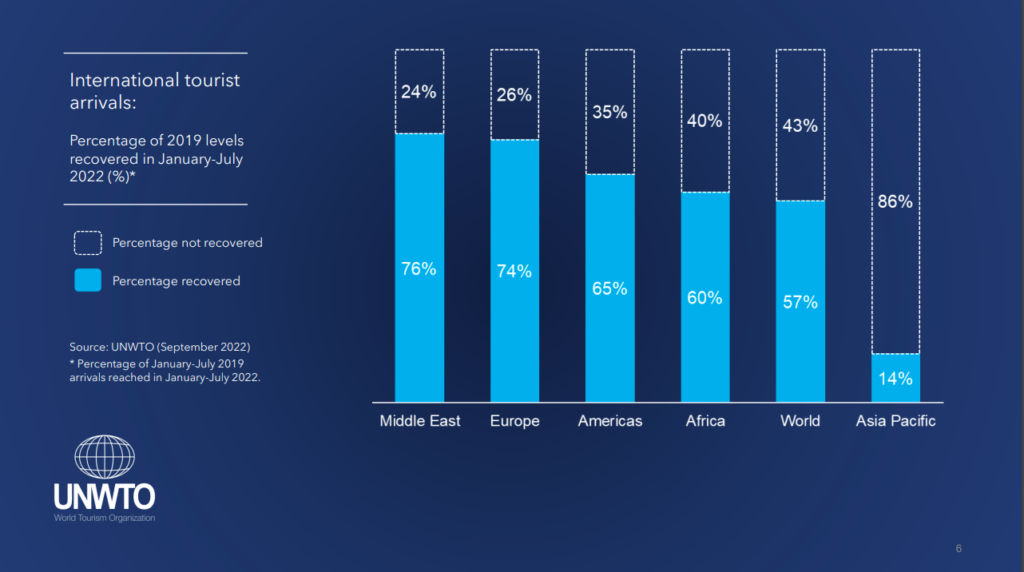
Below are excerpts from the September 2022 release of the UNWTO Tourism Barometer :
- The steady recovery reflects strong pent-up demand for international travel, especially in the months of June and July which are part of the Northern Hemisphere summer season. The easing or lifting of travel restrictions in an increasing number of countries also contributed to boost results.
- International tourist arrivals almost tripled (+172%) in January-July 2022 compared to the same period of 2021. Numbers climbed from -64% in January 2022 (versus 2019) to -28% in July, the strongest month since the start of the pandemic.
- Asia and the Pacific (+165%) saw arrivals more than double in the first seven months of 2022, though they remained 86% below 2019 levels.
- The ongoing recovery can also be seen in outbound tourism spending from major source markets. Expenditure from France was at -12% in January-July 2022 compared to 2019 while spending from Germany stood at -14%. International tourism spending remained at -10% in Belgium, -23% in Italy and -26% in the United States.
- The uncertain economic environment seems to have reversed prospects for a return to pre-pandemic levels in the near term. 61% of UNWTO Panel of Experts now see a potential return of international arrivals to 2019 levels in 2024 or later while those indicating a return to pre-pandemic levels in 2023 has diminished (27%) compared to the May survey (48%).

Know more about the global tourism sector performance from January to July 2022 by checking the UNWTO World Tourism Barometer Volume 20, Issue 5 .
LEAVE A REPLY Cancel reply
Save my name, email, and website in this browser for the next time I comment.
Regional Support Office in Asia and the Pacific (RSOAP)
Rsoap a to z.
- Sustainable Tourism Observatories(INSTO)
UNWTO A to Z
- About UNWTO
- Affiliate Members
- Member States
- Tourism in the 2030 Agenda
- World Tourism Day
- Technical Cooperation
- ASIA AND THE PACIFIC
- MIDDLE EAST
- RESOURCES/SERVICES
- Sustainable Development of Tourism
- Ethics, Culture and Social Responsibility
- Market Intelligence
- Tourism Data Dashboard
- Publications
- UNWTO Academy
Partners links

© UNWTO Regional Support Office for Asia and the Pacific (RSOAP)
- Course Catalog

TOURISM TRENDS 2022
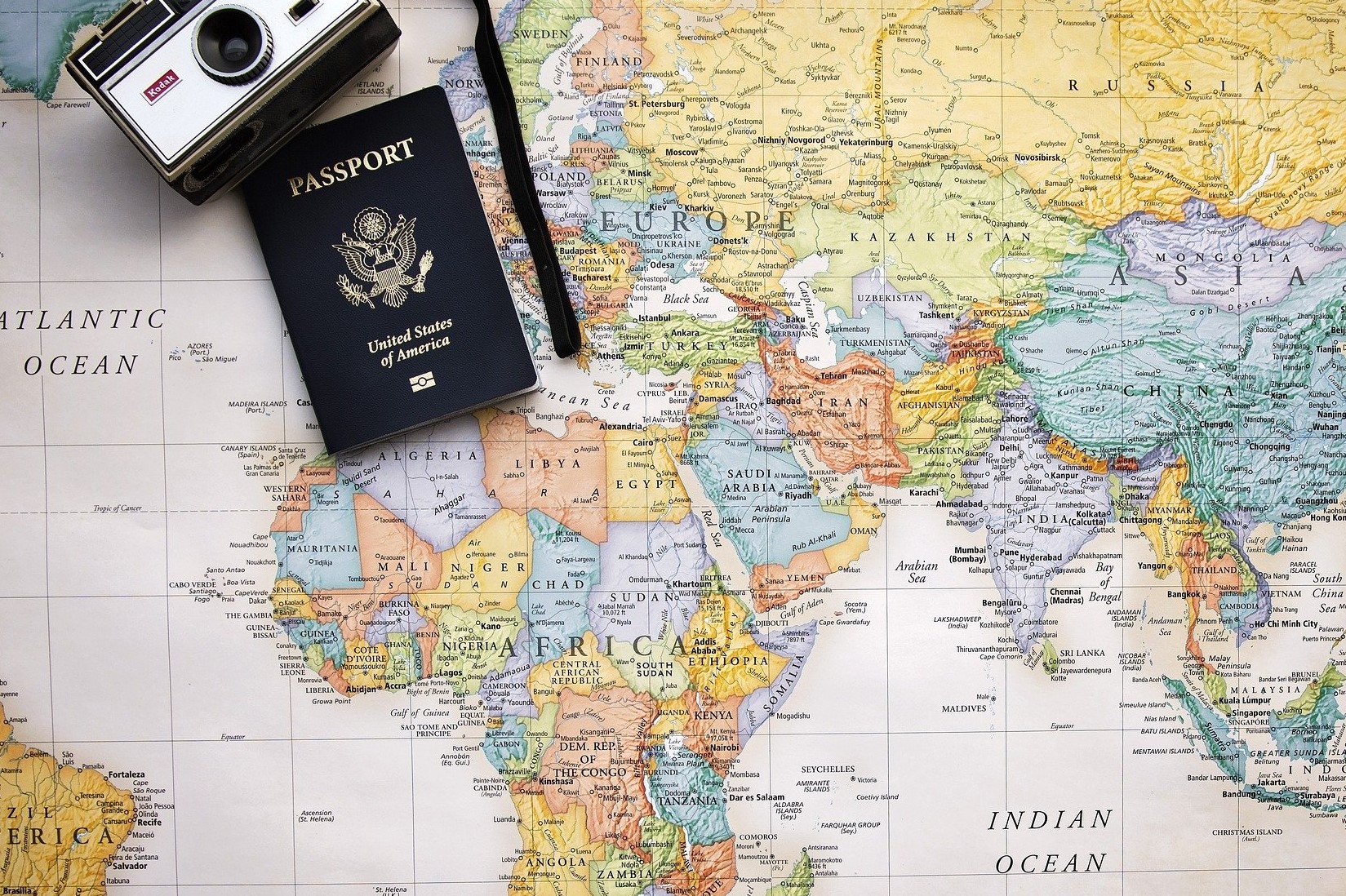
11 Aug TOURISM TRENDS 2022
The situation for tourism remains rather unusual as a result of the ongoing COVID-19 pandemic.
The crisis has marked a significant change for everyone, and above all for tourism, one of sectors hit hardest by the virus. 2020 was the year in which international tourism came to a near-complete standstill, and the only alternatives were domestic and local tourism.
2021 has seen some improvements, but only in a very subtle way as restrictions are still in place and many countries keep their borders fully or partially closed.
It is difficult to make an estimate for 2022 as it is not known how the pandemic will evolve. However, it is possible to talk about the new tourism trends that are likely to emerge over the coming year: – International travel with restrictions still maintained by both destinations and airlines in order to offer 100% security to the consumer.
– Reinforcement of COVID-19 testing; two years after the pandemic, COVID testing will still be in place as a preventive measure. – Conscious travel will be advocated. Travel to more distant destinations, but with prolonged durations of stay, as consumers look to enjoy as much of each place they visit as possible. – Green travel. Climate change is a problem that is present and growing. Consumers now are much more responsible and aware of the reality they live in on daily basis.
– A new trend is the “ed-ventures”. It is about combining education and holidays for the youngest members of the family. While adults may need to telework or attend meetings, their children can be doing workshops and learning in a playful way.
- Client log in
Metallurgicheskii Zavod Electrostal AO (Russia)
In 1993 "Elektrostal" was transformed into an open joint stock company. The factory occupies a leading position among the manufacturers of high quality steel. The plant is a producer of high-temperature nickel alloys in a wide variety. It has a unique set of metallurgical equipment: open induction and arc furnaces, furnace steel processing unit, vacuum induction, vacuum- arc furnaces and others. The factory has implemented and certified quality management system ISO 9000, received international certificates for all products. Elektrostal today is a major supplier in Russia starting blanks for the production of blades, discs and rolls for gas turbine engines. Among them are companies in the aerospace industry, defense plants, and energy complex, automotive, mechanical engineering and instrument-making plants.
Headquarters Ulitsa Zheleznodorozhnaya, 1 Elektrostal; Moscow Oblast; Postal Code: 144002
Contact Details: Purchase the Metallurgicheskii Zavod Electrostal AO report to view the information.
Website: http://elsteel.ru
EMIS company profiles are part of a larger information service which combines company, industry and country data and analysis for over 145 emerging markets.
To view more information, Request a demonstration of the EMIS service

Turn Your Curiosity Into Discovery
Latest facts.
11 Facts About National Numeracy Day May 22nd
9 Facts About Workers Memorial Day April 28th
40 facts about elektrostal.
Written by Lanette Mayes
Modified & Updated: 02 Mar 2024
Reviewed by Jessica Corbett

Elektrostal is a vibrant city located in the Moscow Oblast region of Russia. With a rich history, stunning architecture, and a thriving community, Elektrostal is a city that has much to offer. Whether you are a history buff, nature enthusiast, or simply curious about different cultures, Elektrostal is sure to captivate you.
This article will provide you with 40 fascinating facts about Elektrostal, giving you a better understanding of why this city is worth exploring. From its origins as an industrial hub to its modern-day charm, we will delve into the various aspects that make Elektrostal a unique and must-visit destination.
So, join us as we uncover the hidden treasures of Elektrostal and discover what makes this city a true gem in the heart of Russia.
Key Takeaways:
- Elektrostal, known as the “Motor City of Russia,” is a vibrant and growing city with a rich industrial history, offering diverse cultural experiences and a strong commitment to environmental sustainability.
- With its convenient location near Moscow, Elektrostal provides a picturesque landscape, vibrant nightlife, and a range of recreational activities, making it an ideal destination for residents and visitors alike.
Known as the “Motor City of Russia.”
Elektrostal, a city located in the Moscow Oblast region of Russia, earned the nickname “Motor City” due to its significant involvement in the automotive industry.
Home to the Elektrostal Metallurgical Plant.
Elektrostal is renowned for its metallurgical plant, which has been producing high-quality steel and alloys since its establishment in 1916.
Boasts a rich industrial heritage.
Elektrostal has a long history of industrial development, contributing to the growth and progress of the region.
Founded in 1916.
The city of Elektrostal was founded in 1916 as a result of the construction of the Elektrostal Metallurgical Plant.
Located approximately 50 kilometers east of Moscow.
Elektrostal is situated in close proximity to the Russian capital, making it easily accessible for both residents and visitors.
Known for its vibrant cultural scene.
Elektrostal is home to several cultural institutions, including museums, theaters, and art galleries that showcase the city’s rich artistic heritage.
A popular destination for nature lovers.
Surrounded by picturesque landscapes and forests, Elektrostal offers ample opportunities for outdoor activities such as hiking, camping, and birdwatching.
Hosts the annual Elektrostal City Day celebrations.
Every year, Elektrostal organizes festive events and activities to celebrate its founding, bringing together residents and visitors in a spirit of unity and joy.
Has a population of approximately 160,000 people.
Elektrostal is home to a diverse and vibrant community of around 160,000 residents, contributing to its dynamic atmosphere.
Boasts excellent education facilities.
The city is known for its well-established educational institutions, providing quality education to students of all ages.
A center for scientific research and innovation.
Elektrostal serves as an important hub for scientific research, particularly in the fields of metallurgy, materials science, and engineering.
Surrounded by picturesque lakes.
The city is blessed with numerous beautiful lakes, offering scenic views and recreational opportunities for locals and visitors alike.
Well-connected transportation system.
Elektrostal benefits from an efficient transportation network, including highways, railways, and public transportation options, ensuring convenient travel within and beyond the city.
Famous for its traditional Russian cuisine.
Food enthusiasts can indulge in authentic Russian dishes at numerous restaurants and cafes scattered throughout Elektrostal.
Home to notable architectural landmarks.
Elektrostal boasts impressive architecture, including the Church of the Transfiguration of the Lord and the Elektrostal Palace of Culture.
Offers a wide range of recreational facilities.
Residents and visitors can enjoy various recreational activities, such as sports complexes, swimming pools, and fitness centers, enhancing the overall quality of life.
Provides a high standard of healthcare.
Elektrostal is equipped with modern medical facilities, ensuring residents have access to quality healthcare services.
Home to the Elektrostal History Museum.
The Elektrostal History Museum showcases the city’s fascinating past through exhibitions and displays.
A hub for sports enthusiasts.
Elektrostal is passionate about sports, with numerous stadiums, arenas, and sports clubs offering opportunities for athletes and spectators.
Celebrates diverse cultural festivals.
Throughout the year, Elektrostal hosts a variety of cultural festivals, celebrating different ethnicities, traditions, and art forms.
Electric power played a significant role in its early development.
Elektrostal owes its name and initial growth to the establishment of electric power stations and the utilization of electricity in the industrial sector.
Boasts a thriving economy.
The city’s strong industrial base, coupled with its strategic location near Moscow, has contributed to Elektrostal’s prosperous economic status.
Houses the Elektrostal Drama Theater.
The Elektrostal Drama Theater is a cultural centerpiece, attracting theater enthusiasts from far and wide.
Popular destination for winter sports.
Elektrostal’s proximity to ski resorts and winter sport facilities makes it a favorite destination for skiing, snowboarding, and other winter activities.
Promotes environmental sustainability.
Elektrostal prioritizes environmental protection and sustainability, implementing initiatives to reduce pollution and preserve natural resources.
Home to renowned educational institutions.
Elektrostal is known for its prestigious schools and universities, offering a wide range of academic programs to students.
Committed to cultural preservation.
The city values its cultural heritage and takes active steps to preserve and promote traditional customs, crafts, and arts.
Hosts an annual International Film Festival.
The Elektrostal International Film Festival attracts filmmakers and cinema enthusiasts from around the world, showcasing a diverse range of films.
Encourages entrepreneurship and innovation.
Elektrostal supports aspiring entrepreneurs and fosters a culture of innovation, providing opportunities for startups and business development.
Offers a range of housing options.
Elektrostal provides diverse housing options, including apartments, houses, and residential complexes, catering to different lifestyles and budgets.
Home to notable sports teams.
Elektrostal is proud of its sports legacy, with several successful sports teams competing at regional and national levels.
Boasts a vibrant nightlife scene.
Residents and visitors can enjoy a lively nightlife in Elektrostal, with numerous bars, clubs, and entertainment venues.
Promotes cultural exchange and international relations.
Elektrostal actively engages in international partnerships, cultural exchanges, and diplomatic collaborations to foster global connections.
Surrounded by beautiful nature reserves.
Nearby nature reserves, such as the Barybino Forest and Luchinskoye Lake, offer opportunities for nature enthusiasts to explore and appreciate the region’s biodiversity.
Commemorates historical events.
The city pays tribute to significant historical events through memorials, monuments, and exhibitions, ensuring the preservation of collective memory.
Promotes sports and youth development.
Elektrostal invests in sports infrastructure and programs to encourage youth participation, health, and physical fitness.
Hosts annual cultural and artistic festivals.
Throughout the year, Elektrostal celebrates its cultural diversity through festivals dedicated to music, dance, art, and theater.
Provides a picturesque landscape for photography enthusiasts.
The city’s scenic beauty, architectural landmarks, and natural surroundings make it a paradise for photographers.
Connects to Moscow via a direct train line.
The convenient train connection between Elektrostal and Moscow makes commuting between the two cities effortless.
A city with a bright future.
Elektrostal continues to grow and develop, aiming to become a model city in terms of infrastructure, sustainability, and quality of life for its residents.
In conclusion, Elektrostal is a fascinating city with a rich history and a vibrant present. From its origins as a center of steel production to its modern-day status as a hub for education and industry, Elektrostal has plenty to offer both residents and visitors. With its beautiful parks, cultural attractions, and proximity to Moscow, there is no shortage of things to see and do in this dynamic city. Whether you’re interested in exploring its historical landmarks, enjoying outdoor activities, or immersing yourself in the local culture, Elektrostal has something for everyone. So, next time you find yourself in the Moscow region, don’t miss the opportunity to discover the hidden gems of Elektrostal.
Q: What is the population of Elektrostal?
A: As of the latest data, the population of Elektrostal is approximately XXXX.
Q: How far is Elektrostal from Moscow?
A: Elektrostal is located approximately XX kilometers away from Moscow.
Q: Are there any famous landmarks in Elektrostal?
A: Yes, Elektrostal is home to several notable landmarks, including XXXX and XXXX.
Q: What industries are prominent in Elektrostal?
A: Elektrostal is known for its steel production industry and is also a center for engineering and manufacturing.
Q: Are there any universities or educational institutions in Elektrostal?
A: Yes, Elektrostal is home to XXXX University and several other educational institutions.
Q: What are some popular outdoor activities in Elektrostal?
A: Elektrostal offers several outdoor activities, such as hiking, cycling, and picnicking in its beautiful parks.
Q: Is Elektrostal well-connected in terms of transportation?
A: Yes, Elektrostal has good transportation links, including trains and buses, making it easily accessible from nearby cities.
Q: Are there any annual events or festivals in Elektrostal?
A: Yes, Elektrostal hosts various events and festivals throughout the year, including XXXX and XXXX.
Was this page helpful?
Our commitment to delivering trustworthy and engaging content is at the heart of what we do. Each fact on our site is contributed by real users like you, bringing a wealth of diverse insights and information. To ensure the highest standards of accuracy and reliability, our dedicated editors meticulously review each submission. This process guarantees that the facts we share are not only fascinating but also credible. Trust in our commitment to quality and authenticity as you explore and learn with us.
Share this Fact:

- Victor Mukhin

Victor M. Mukhin was born in 1946 in the town of Orsk, Russia. In 1970 he graduated the Technological Institute in Leningrad. Victor M. Mukhin was directed to work to the scientific-industrial organization "Neorganika" (Elektrostal, Moscow region) where he is working during 47 years, at present as the head of the laboratory of carbon sorbents. Victor M. Mukhin defended a Ph. D. thesis and a doctoral thesis at the Mendeleev University of Chemical Technology of Russia (in 1979 and 1997 accordingly). Professor of Mendeleev University of Chemical Technology of Russia. Scientific interests: production, investigation and application of active carbons, technological and ecological carbon-adsorptive processes, environmental protection, production of ecologically clean food.
Title : Active carbons as nanoporous materials for solving of environmental problems
Quick links.
- Conference Brochure
- Tentative Program

2022 has been the year to rethink tourism. Countries around the world turned UNWTO's vision for a greener, smarter and more inclusive sector into real action. 2020 showed the relevance of tourism for sustainable development. 2021 laid the foundations for the transformation of the sector. In 2022, we made it happen. 2022 began on a positive note.
According to the latest UNWTO World Tourism Barometer, international tourism saw a strong rebound in the first five months of 2022, with almost 250 million international arrivals recorded. This compares to 77 million arrivals from January to May 2021 and means that the sector has recovered almost half (46%) of pre-pandemic 2019 levels. UN ...
International Tourism Highlights, 2023 Edition - The Impact of COVID-19 on Tourism (2020-2022) ISBN (printed version): 978-92-844-2497-9 ISBN (electronic version): 978-92-844-2498-6 DOI: 10.18111/9789284424986 Published by the World Tourism Organization (UNWTO), Madrid, Spain First published: September 2023 Revised and updated: October 2023
Find out the latest updates from the UNWTO on tourism trends, challenges and opportunities in 2022 and beyond. Learn about the UNWTO's activities, projects and partnerships in various regions and topics, such as sustainable tourism, gastronomy, investment and education.
International Tourism and COVID-19. Export revenues from international tourism dropped 62% in 2020 and 59% in 2021, versus 2019 (real terms) and then rebounded in 2022, remaining 34% below pre-pandemic levels. The total loss in export revenues from tourism amounts to USD 2.6 trillion for that three-year period. Go to Dashboard.
According to the latest UNWTO World Tourism Barometer, international tourist arrivals almost tripled in January to July 2022 (+172%) compared to the same period of 2021. This means t he sector recovered almost 60% of pre-pandemic levels. The steady recovery reflects strong pent-up demand for international travel as well as the easing or lifting ...
The time is now to seize this opportunity to rethink how we do tourism. The official World Tourism Day celebration will be held in Bali, Indonesia, on 27 September, highlighting the shift towards tourism being recognized as a crucial pillar of development. Wonderful Indonesia - Witness the 42nd World Tourism Day 2022 in Bali, Indonesia!
In terms of tourist numbers, the year 2022 is expected to close with over 900 million international arrivals, despite growing challenges pointing to a softening of the recovery pace. International tourist arrivals: 2020, 2021 and Scenarios for 2022 (monthly change over 2019,%) Source UNWTO World Tourism Barometer: November 2022 Press Release.
January - March. As global tourism faced up to a second year of unprecedented crisis, UNWTO began 2021 by counting the cost so far.At the same time, however, the emergence of vaccines brought hope.The Global Tourism Crisis Committee met to explore what this meant for safe travel and the restart of tourism, while the announcement of the winners of the UNWTO Global Start-up Competition ...
Below are excerpts from the latest World Tourism Barometer May 2022 issue: According to the latest UNWTO World Tourism Barometer, international tourism saw a 182% year-on-year increase in January-March 2022, with destinations worldwide welcoming an estimated 117 million international arrivals compared to 41 million in Q1 2021.
The UNWTO Elibrary is an online service from the World Tourism Organization (UNWTO) with a broad coverage of tourism and related subject areas. ... International Tourism Highlights, 2023 Edition - The Impact of COVID-19 on Tourism (2020-2022) Revised and updated, October 2023. Released: December 2023.
The 7th UNWTO World Forum on Gastronomy Tourism will be held from Monday, December 12 to Thursday, December 15, 2022 (4 days).
The economic contribution of tourism (tourism direct gross domestic product) is estimated at US$1.9 trillion in 2021, above the US$1.6 trillion in 2020, but still well below the pre-pandemic value of US$ 3.5 trillion. The latest UNWTO Panel of Experts survey indicates that 61% of tourism professionals expect better performance in 2022 than in 2021.
Below are relevant points to the July 2022 World Tourism Barometer: Nearly 250 million international trips were recorded worldwide in the first five months of the year, more than three times the number of arrivals recorded in the same period of 2021 (77 million). Robust performance is also reflected in hotel occupancy rates.
2022-10-28. Below are excerpts from the September 2022 release of the UNWTO Tourism Barometer: The steady recovery reflects strong pent-up demand for international travel, especially in the months of June and July which are part of the Northern Hemisphere summer season. The easing or lifting of travel restrictions in an increasing number of ...
International tourism continues to outpace the global economy. 2. Driven by a relatively strong global economy, a growing middle class in emerging economies, technological advances, new business models, affordable travel costs and visa facilitation, international tourist arrivals grew 5% in 2018 to reach the 1.4 billion mark.
UNWTO Tourism Academy | TOURISM TRENDS 2022. The situation for tourism remains rather unusual as a result of the ongoing COVID-19 pandemic. The crisis has marked a significant change for everyone, and above all for tourism, one of sectors hit hardest by the virus. 2020 was the year in which international tourism came to a near-complete ...
International Tourism Highlights, 2023 Edition - The Impact of COVID-19 on Tourism (2020-2022) Revised and updated, October 2023 Published: December 2023 Pages: 32
International Tourism Highlights, 2020 Edition. Published: January 2021 Pages: 23. eISBN: 978-92-844-2245-6 | ISBN: 978-92-844-2244-9. Abstract: 2019 was another year of strong growth, though international arrivals grew below the exceptional rates seen in 2017 (+7%) and 2018 (+6%). Demand was somewhat weaker for travel to advanced economy ...
Main Activities: Iron and Steel Mills and Ferroalloy Manufacturing | Nonferrous Metal (except Copper and Aluminum) Rolling, Drawing, and Extruding. Full name: Metallurgicheskii Zavod Electrostal AO Profile Updated: February 22, 2024. Buy our report for this company USD 29.95 Most recent financial data: 2022 Available in: English & Russian ...
40 Facts About Elektrostal. Elektrostal is a vibrant city located in the Moscow Oblast region of Russia. With a rich history, stunning architecture, and a thriving community, Elektrostal is a city that has much to offer. Whether you are a history buff, nature enthusiast, or simply curious about different cultures, Elektrostal is sure to ...
Catalysis Conference is a networking event covering all topics in catalysis, chemistry, chemical engineering and technology during October 19-21, 2017 in Las Vegas, USA. Well noted as well attended meeting among all other annual catalysis conferences 2018, chemical engineering conferences 2018 and chemistry webinars.
In the city of Elektrostal in Russia, a drone attack occurred. It's reported that no one was injured as a result of the incident. Additional details, including the particulars of the attack, potential motives or responsible parties, have not been provided. However, the fact that a drone was used as a means of attack underscores
UN Tourism | Bringing the world closer
Share this content.
- Share this article on facebook
- Share this article on twitter
- Share this article on linkedin
A United Vision for Nature - 'Nature Positive' Report Marks New Collaborative Era in Travel & Tourism
- All Regions
- 22 Apr 2024
WTTC, UN Tourism and the Sustainable Hospitality Alliance join forces to support Nature Positive Tourism

The leading players of Travel & Tourism globally have published a landmark joint report setting out their joint plan to help halt and reverse biodiversity loss.
Launched on Earth Day 2024, "Nature Positive Travel & Tourism in Action" is the creation of the high-level 'Nature Positive Tourism Partnership, made up of the World Travel & Tourism Council ( WTTC ), the World Tourism Organization ( UN Tourism ) and the Sustainable Hospitality Alliance ( the Alliance ).
For years, UN Tourism has been at the forefront of integrating tourism into the broader UN biodiversity agenda, including supporting the work of the Secretariat of the Convention on Biological Diversity (CBD)
Developed in collaboration with specialist consultancy ANIMONDIAL, the report is the sector's pledge to support the implementation of the Kunming-Montreal Global Biodiversity Framework (GBF), the UN's Biodiversity Plan.
It presents more than 30 case studies of inspiring and progressive actions from around the world involving large and small businesses, national and local government agencies, civil society groups, and inter-sectoral partnerships.
By offering actionable guidance and insights, this report not only highlights the intrinsic link between biodiversity and tourism's resilience, but also empowers businesses to become stewards of nature.
Historic partnership for nature
Ms. Julia Simpson, WTTC President & CEO , said: "This historic partnership with Travel & Tourism heavyweights is a significant step in our collective journey towards a more sustainable and responsible sector. This report is not merely a publication but a movement towards integrating environmental stewardship into the core of travel experiences. As we celebrate Earth Day, let us heed the call to nurture and protect our destinations. Our sector's reliance on nature, coupled with our expertise in creating inspiring and memorable experiences, means we are ideally placed to be guardians of nature."
Mr. Zurab Pololikashvili, Secretary-General of UN Tourism , said: "For years, UN Tourism has been at the forefront of integrating tourism into the broader UN biodiversity agenda, including supporting the work of the Secretariat of the Convention on Biological Diversity (CBD). This pivotal new collaboration among key global players sets a robust framework for sustainable practices that not only drive significant impact but also exemplify the power of united efforts in conserving biodiversity. This report is a testimony to what we can achieve together for nature's preservation, inspiring a global movement towards more sustainable and resilient tourism."
Mr. Glenn Mandziuk, Sustainable Hotel Alliance CEO , said: "This report is a milestone for Travel and Tourism, representing our commitment as an industry to protect and conserve nature. The Alliance is proud to contribute to and collaborate on this insightful and action-orientated report which will bring tangible change to destinations around the world, supporting biodiversity. Nature underpins our society, economies and indeed our very existence. The hospitality industry is today a leader amongst industries in its Nature Positive approach and this report signifies how much our industry understands the true value of nature."
Expert-led coalition
Recognising that the sector has a critical role to play in protecting and conserving biodiversity, the Nature Positive Tourism approach is designed to be a touchstone for actionable change. It focuses on equipping the sector with the tools and insights needed to nurture and protect destinations upon which it depends.
The commitment of the Partnership to work towards "net positive for nature" draws on extensive consultation with experts from business, government, academia and civil society, including the International Union for Conservation of Nature (IUCN) and the World Commission on Protected Areas (WCPA).
The report, which follows the 2022 WTTC report "Nature Positive Travel & Tourism", includes practical frameworks and real-world examples that encourage both travel providers and travellers to embark on journeys that contribute to the conservation of our natural treasures.
Related links
- Download News Release on PDF
- Report “Nature Positive Travel & Tourism”
- UN Tourism Biodiversity
- Sustainable Hospitality Alliance
Related Content
Un tourism and hotelschool the hague to drive innovatio..., un tourism international forum – quintana roo “tourism ..., un general assembly hosts tourism for sustainable devel..., european committee of the regions and un tourism break ....
Amadeus’s Travel4Impact Goes Global as Greenwashing Cases Make Headlines
Jesse Chase-Lubitz , Skift
April 26th, 2024 at 9:56 AM EDT
A program newly open to Americans as well as Europeans promises to educate travel company leaders on sustainable practices.
Jesse Chase-Lubitz
Amadeus , the travel technology giant, is offering a program that provides subsidized sustainability training for small and medium enterprises in the tourism industry to the Americas for the first time.
The Spanish company has run the program Travel4Impact in Spain for Europeans for the last three years. What’s new is the program will now also accept applications from companies in the Americas. Applications close on April 30.
The program taps into a general trend toward positive-impact travel by offering C-level executives from small and medium companies a fully funded, six-month training and tutoring program taught by professors at IE University, or Universidad Instituto de Empresa, a Spanish business school. The program will offer spots to around 40 companies and start in September 2024.
The program aims to help companies incorporate sustainable practices and digital strategies into their business models and provides a network of professionals and companies making similar efforts.
“People want to travel, but they want to leave a positive impact,” said Poonam Rawat-Hahne, founder and CEO of Fernweh Fair Travel, in a webinar run by Amadeus on Tuesday. Rawat-Hahne added that she saw a niche for travel operators and agents wanting to take social impact into account increase after the pandemic.
“That niche exists,” said Jake Haupert, CEO of the Transformational Travel Council. “It’s at the bedrock of why we travel — those experiences, those opportunities to connect and learn from others are instrumental.”
Greenwashing Cases
In recent months, greenwashing cases in the travel industry have made headlines. A Dutch court found the airline KLM had put out a misleading advertising campaign that hyped up the company’s environmental image.
Booking.com ended its “Travel Sustainable” program, highlighting sustainable properties, in March after the Netherlands Authority for Consumers and Markets said the program “was a possibly misleading sustainability claim.”
“This is a really positive sign of our industry,” says Haupert of these cases. “That these things are happening now. People are going to be thinking a little bit differently before they go to market and make certain claims.”
The Amadeus-backed course changes each year based on the needs of the participants. In 2023, the syllabus addressed the implications of emerging technologies for the industry and specific companies and how to apply circular economic principles.
Following the completion of the course, participants can continue attending future sessions on topics like artificial intelligence and net zero policies.
The program doesn’t appear to lead companies to achieving any specific certifications schemes.
“Our objective at Travel4Impact is to amplify the impact of small businesses by promoting a purpose-driven innovation ecosystem,” an Amadeus spokesperson said.
The Daily Newsletter
Our daily coverage of the global travel industry. Written by editors and analysts from across Skift’s brands.
Have a confidential tip for Skift? Get in touch
Tags: amadeus , climate change , sustainability , training
Photo credit: Madrid headquarters of travel tech firm Amadeus. Source: Amadeus.

Applications for Park City sustainable tourism grant due Wednesday

Mizoram's Tourism Booms as Over 1.96 Lakh Visitors Flock in 2023
Mizoram welcomed over 196,000 tourists in 2023, including 3,435 foreigners, led by americans. the state's responsible tourism policy aims for sustainable development and community empowerment. previously required protected area permits for foreigners have been suspended, except for citizens of afghanistan, pakistan, and china. foreigners must still register with authorities upon arrival..

Over 1,96,000 tourists including foreigners visited Mizoram in the year 2023, the state Tourism department said.
A total of 1,96,880 tourists visited the northeastern state in 2023 of which 1,93,445 were domestic and 3,435 were foreigners, the state tourism department.
With 1,162 tourists, Americans topped the list of foreigners visiting the northeastern state, it said, adding that tourists from other foreign countries including Japan, Australia, Israel, Canada and the United Kingdom, also visited Mizoram last year.
The tourist footfall in 2022-23 was over 2.22 lakh of which 2.18 lakh were domestic tourists and 3,551 were foreigners.
The tourist footfall in the state was minimal during the Covid-19 pandemic.
It was 20,564 in 2020-21 and 1.32 lakh in 2021-22.
Mizoram tourism is making headway with a 'responsible' tourism policy that came into force in August 2020.
The 'responsible' tourism policy envisages a sustainable development strategy, coordination, strengthening institutional framework and skill development.
The policy also focuses on making tourism a tool for development of villages and local communities, eradicating poverty and providing livelihood for the local population while upholding the principles of economic, social and environmental responsibilities.
In the past, foreigners had to obtain Protected Area Permit (PAP) from the Union Home Ministry in order to travel to Mizoram.
However, the Home Ministry has suspended PAP and all foreigners except from Afghanistan, Pakistan and China are now exempted from PAP.
Although PAP is no longer required for foreign tourists, every foreigner has to report themselves at the Foreigner Registration Office in Aizawl within 24 hours of their arrival in Mizoram.
Soccer-Player release issues threaten Japan and South Korea's Olympic hopes
Palestinian americans fundraise for gaza, as aid groups receive record donations, philippine president: trilateral agreement with u.s., japan not directed at anyone, testimony starts in lawsuit alleging japanese police engaged in racial profiling practice, nx group begins offering ''nx-green saf program'' in japan.

Reuters Health News Summary

Vote for PM Modi: He got us COVID vaccines during pandemic, says Fadnavis

Tesla CEO Elon Musk Visits Beijing, Meets with Chinese Premier Li Qiang

Unemployment Among Young Indians is Temporary: RBI MPC Member
Latest news, nagpur airport cleared after bomb threat email proves false, us, britain urge hamas to accept israeli truce proposal, violent crime against transgender person in rajasthan's neem ka thana district, allahabad hc quashes hathras dm's order appointing dc as executive officer of nagar palika parishad.

OPINION / BLOG / INTERVIEW
Green metropolises: navigating the path to sustainable urban growth globally, the creative frontier: unleashing potential with generative ai, customized minds: the ai revolution in learning and behavioral change, transformative strategies for high-density cities, connect us on.
- ADVERTISEMENT
- KNOWLEDGE PARTNERSHIP
- MEDIA PARTNERSHIP
- Agro-Forestry
- Art & Culture
- Economy & Business
- Energy & Extractives
- Law & Governance
- Science & Environment
- Social & Gender
- East and South East Asia
- Europe and Central Asia
- Central Africa
- East Africa
- Southern Africa
- West Africa
- Middle East and North Africa
- North America
- Latin America and Caribbean
OTHER LINKS
- Write for us
- Submit Press Release
- Opinion / Blog / Analysis
- Business News
- Entertainment News
- Technology News
- Law-order News
- Lifestyle News
- National News
- International News
OTHER PRODUCTS
Email: [email protected] Phone: +91-720-6444012, +91-7027739813, 14, 15
© Copyright 2024

IMAGES
COMMENTS
The One Planet Sustainable Tourism Programme is currently guided by the Global Strategy for Sustainable Consumption and Production 2023-2030 which identifies tourism as a key sector to accelerate sustainability across the multiple stages of its value chain. SCP is about fulfilling the needs of all while using fewer natural resources, including ...
Sustainable tourism development requires the informed participation of all relevant stakeholders, as well as strong political leadership to ensure wide participation and consensus building. Achieving sustainable tourism is a continuous process and it requires constant monitoring of impacts, introducing the necessary preventive and/or corrective ...
A key goal of the UNESCO WH+ST Programme is to strengthen the enabling environment by advocating policies and frameworks that support sustainable tourism as an important vehicle for managing cultural and natural heritage. Developing strategies through broad stakeholder engagement for the planning, development and management of sustainable ...
The One Planet Sustainable Tourism Programme aims to accelerate sustainable consumption and production (SCP) in tourism policies and practices to address the challenges of pollution, biodiversity loss and climate change. It promotes knowledge sharing and networking opportunities to define collective priorities and identify solutions.
The World Tourism Organization defines sustainable tourism as "tourism that takes full account of its current and future economic, social and environmental impacts, addressing the needs of visitors, the industry, the environment and host communities". Based on General assembly resolution 70/193, 2017 was declared as the International Year of ...
The GSTC Sustainable Tourism Training Program (STTP), with the support of the Education and Training Working Group, delivers training to managers and practitioners on use of contemporary tools and resources to facilitate the transition to sustainable practices. Training courses are relevant for a wide range of tourism industry professionals ...
In Arizona State University's online Master of Sustainable Tourism, you'll learn about the environmental, social and economic aspects of traveling. After completing this program, you'll be prepared to build sustainable solutions for the various challenges facing tourism today. Learn more.
CURRENT PUBLIC CONSULTATIONS. GSTC Attraction Criteria Development Public Consultation (until March 15th) Public Consultation on GSTC Accreditation Manual Revision v.4.0 (until April 6th) Find Certified Sustainable Destinations. Find Certified Sustainable Accommodations.
The aim of the International Sustainable Tourism degree programme is to pursue the UN's 17 Sustainable Development Goals and to make a clear commitment to the long-term development of tourism. The vision of HSLU and UNWTO is to create a universally accessible programme that empowers the future-oriented transformation of the entire tourism sector.
New Sustainable Tourism program charts course for travel's future. At the intersection of travel and sustainability is sustainable tourism, a response to the growing need for the travel industry to ensure host communities receive socioeconomic benefits and are protected from adverse environmental effects. As business rebounds in the pandemic ...
TDM 531 Sustainable Tourism Destination Planning and Management II (3) TDM 540 Sustainable Food Management in Tourism (3) ... 3 year programs These programs allow students to fast-track their studies after admission and earn a bachelor's degree in three years or fewer while participating in the same high-quality educational experience of a 4 ...
Sustainable tourism considers its current and future economic, social, and environmental impacts by addressing the needs of its ecological surroundings and the local communities. This is achieved ...
International Sustainable Tourism Master's. Make a career out of protecting the planet. Sustainable tourism strives to meet the needs of the present tourist market without compromising the resources of future generations. This leading-edge tourism specialty balances environmental, economic, and socio-cultural benefits and concerns.
Sustainable tourism is defined by the UN Environment Program and UN World Tourism Organization as "tourism that takes full account of its current and future economic, social and environmental impacts, addressing the needs of visitors, the industry, the environment and host communities."
New Online Course by Cornell STAMP from eCornell. STAMP has created an 8-module online, self-paced Cornell course on Sustainable Tourism Destination Management for professionals and students. The program is available through eCornell. This course aims to train global hospitality and tourism professionals in using sustainable practices across ...
Travel and tourism are bouncing back from Covid-19 and are expected to reach $17 trillion by 2027. The increasing demand for sustainable tourism is not limited to eco-warriors who choose niche experiences and exclusive sustainability offerings. It is simply an appetite to travel sustainably and make more responsible choices.
As program director of the Sustainable Tourism Asset Management Program (STAMP), Ms. Epler Wood seeks to increase collective knowledge and understanding of how to more effectively manage tourism destination assets over time to improve maintenance; ensure proper valuation; and help offset the influences of poverty, ecosystem degradation, climate ...
The Professional Certificate in Sustainable Tourism Destination Management program is a non-degree program that provides continuing education credits (CEUs). Federally funded or other student loan programs or scholarships are not available, and the program is not eligible for deferment of such loans.
Module 7: Sustainable Tourism Strategic Plans. Final Project: Students have the option of doing a final project with a few options to choose from. Upon successful completion of the program, participants will receive a certificate of completion. Certificate fees. The cost for the certificate is $2,450 for AIANTA members and $2,500 for non-members.
A sprawling sustainability program at Sandals. On the other side of the island, at the Sandals Royal Curaçao, a different kind of sustainability program is unfolding. The two-year-old property is ...
2022 has been the year to rethink tourism. Countries around the world turned UNWTO's vision for a greener, smarter and more inclusive sector into real action. 2020 showed the relevance of tourism for sustainable development. 2021 laid the foundations for the transformation of the sector. In 2022, we made it happen. 2022 began on a positive note....
This report is a testimony to what we can achieve together for nature's preservation, inspiring a global movement towards more sustainable and resilient tourism." Mr. Glenn Mandziuk, Sustainable Hotel Alliance CEO, said: "This report is a milestone for Travel and Tourism, representing our commitment as an industry to protect and conserve nature ...
Global voting, open to travel and tourism professionals, will run from 14 June to 2 August. Leaders in sustainable travel will be invited to attend the inaugural WSTHA Gala Ceremony in Belize, the ...
In today's era of heightened environmental awareness, sustainable travel has emerged as a pivotal trend shaping the tourism industry worldwide. Amidst this shift, Travly, a prominent travel ...
HO CHI MINH CITY, Vietnam, April 24, 2024 /PRNewswire/ -- As the only travel expo in the region featuring an International Buyers' Program The 18 th edition of the International Travel Expo Ho Chi ...
Jesse Chase-Lubitz. Amadeus, the travel technology giant, is offering a program that provides subsidized sustainability training for small and medium enterprises in the tourism industry to the ...
After a successful first year, the Park City Chamber and Visitors Bureau is again seeking applications for its sustainable tourism grant program. Grant awards up to $30,000 are available for local businesses, nonprofits, and even government entities working with private or nonprofit sectors ...
On July 19, 2021, the Committee of the Moscow Chamber of Commerce and Industry (MCCI) held an open round table on Sustainable Development of the Real Sector of the Economy and Investment Activity (the Committee of the Moscow Chamber of Commerce and Industry) was held. The event was in the format of a videoconference on the topic: "Forms of ...
Mizoram welcomed over 196,000 tourists in 2023, including 3,435 foreigners, led by Americans. The state's responsible tourism policy aims for sustainable development and community empowerment. Previously required Protected Area Permits for foreigners have been suspended, except for citizens of Afghanistan, Pakistan, and China. Foreigners must still register with authorities upon arrival.
This page is part of the Facilities Collection.. Established in 1917, this facility manufactured munitions before it was redirected toward production for the USSR's military and civil nuclear programs.In 1954, Elemash began to produce fuel assemblies, including for the first nuclear power plant in the world, located in Obninsk. In 1959, the facility produced the fuel for the Soviet Union's ...